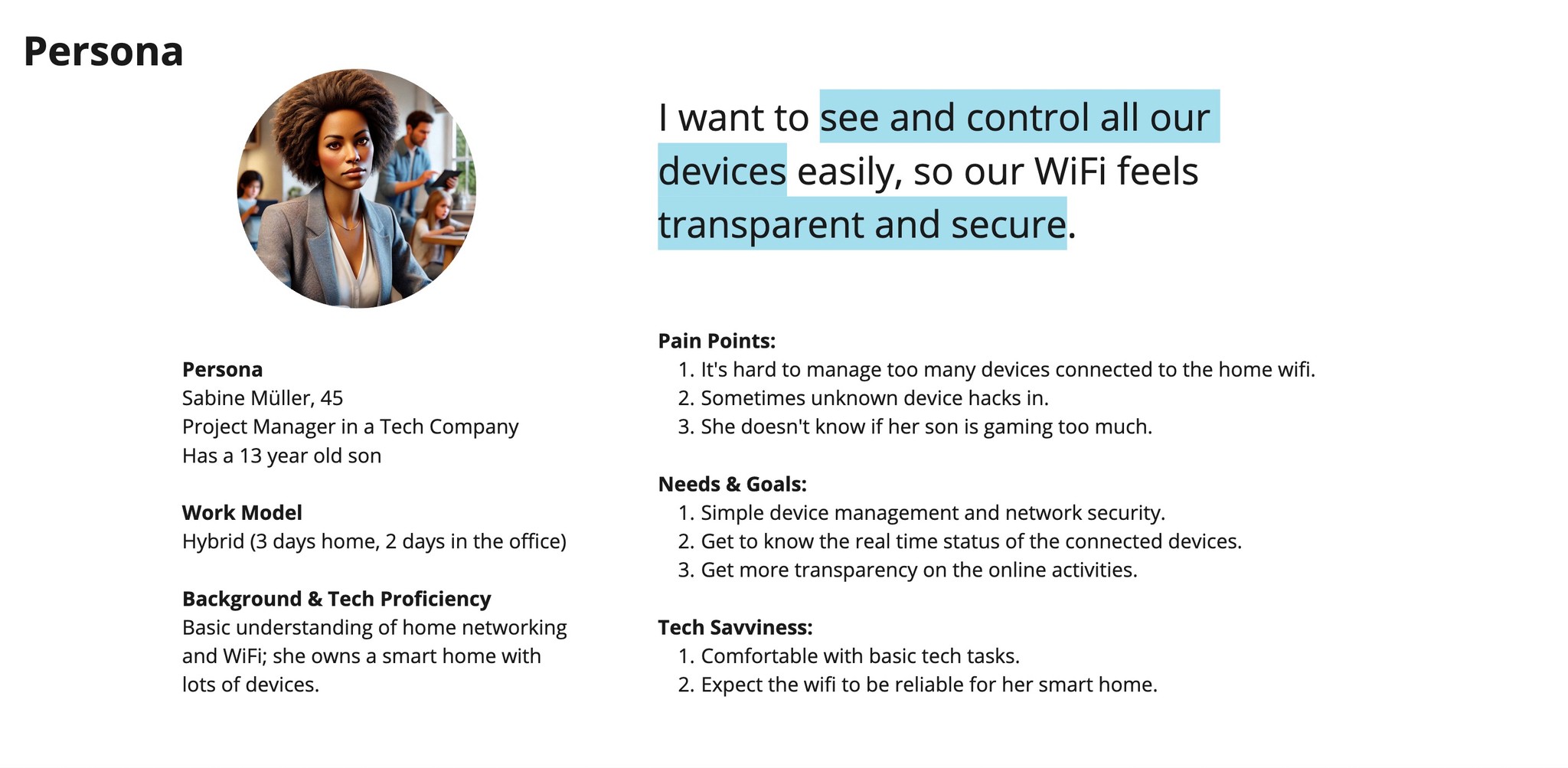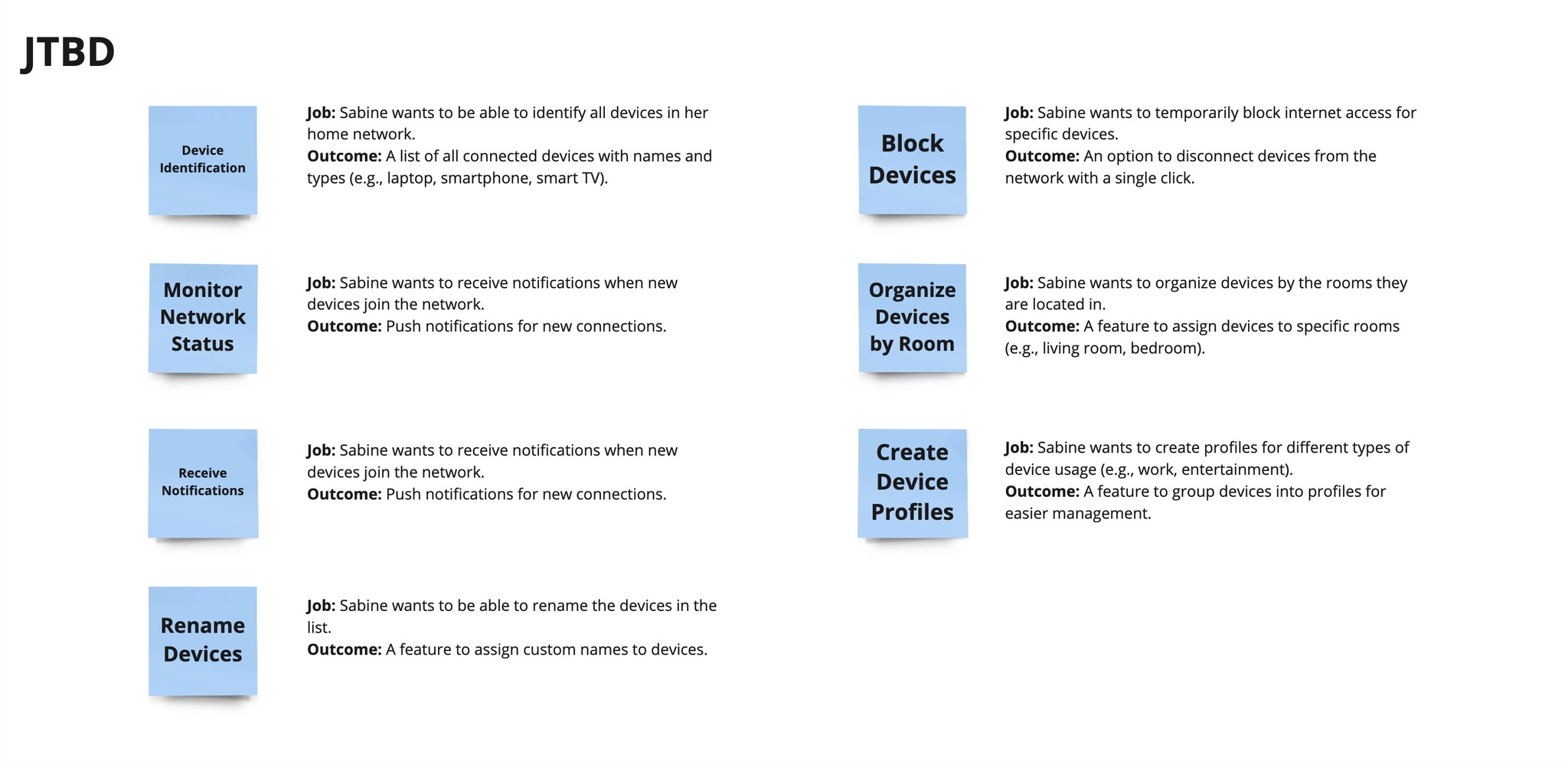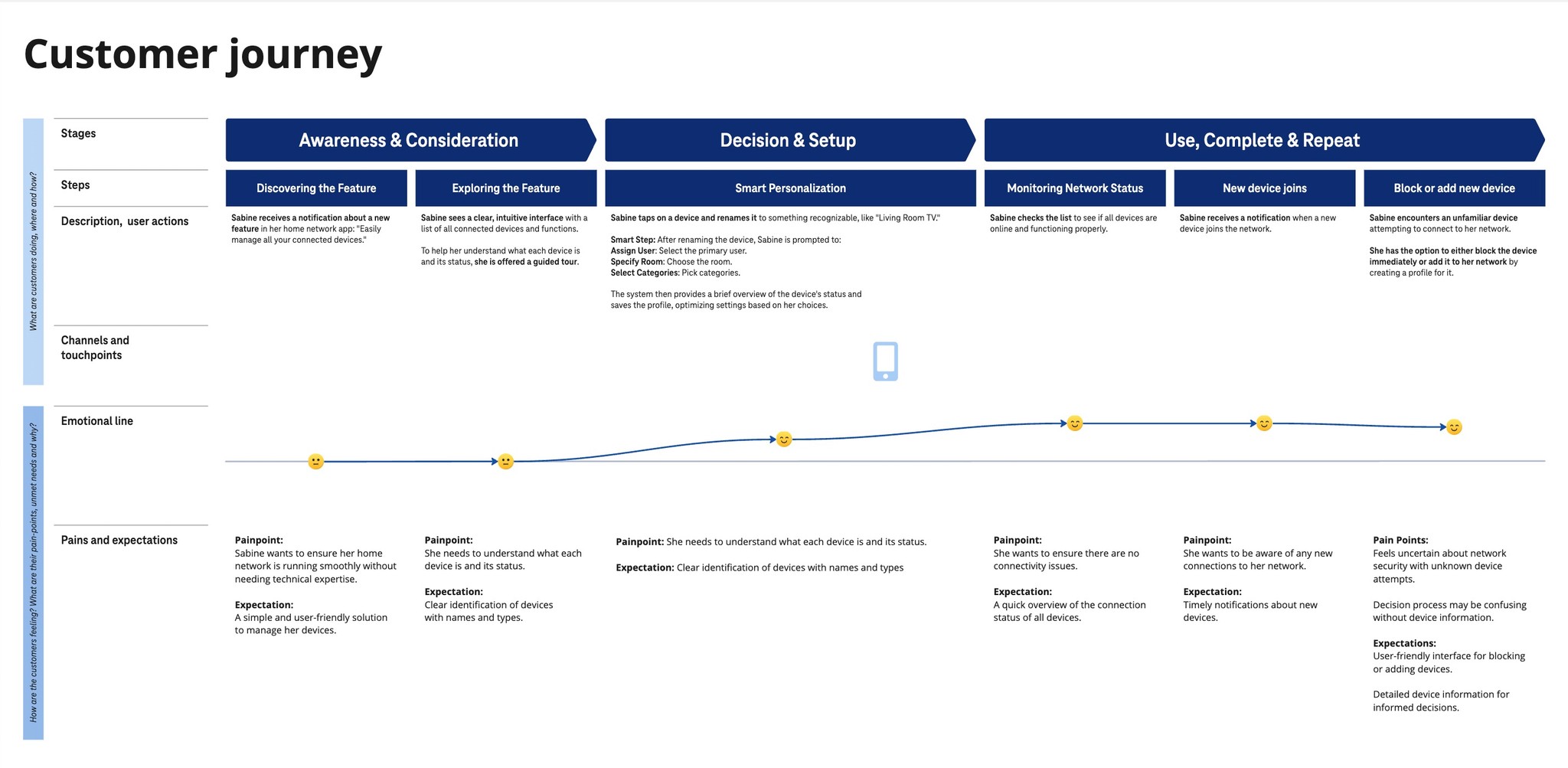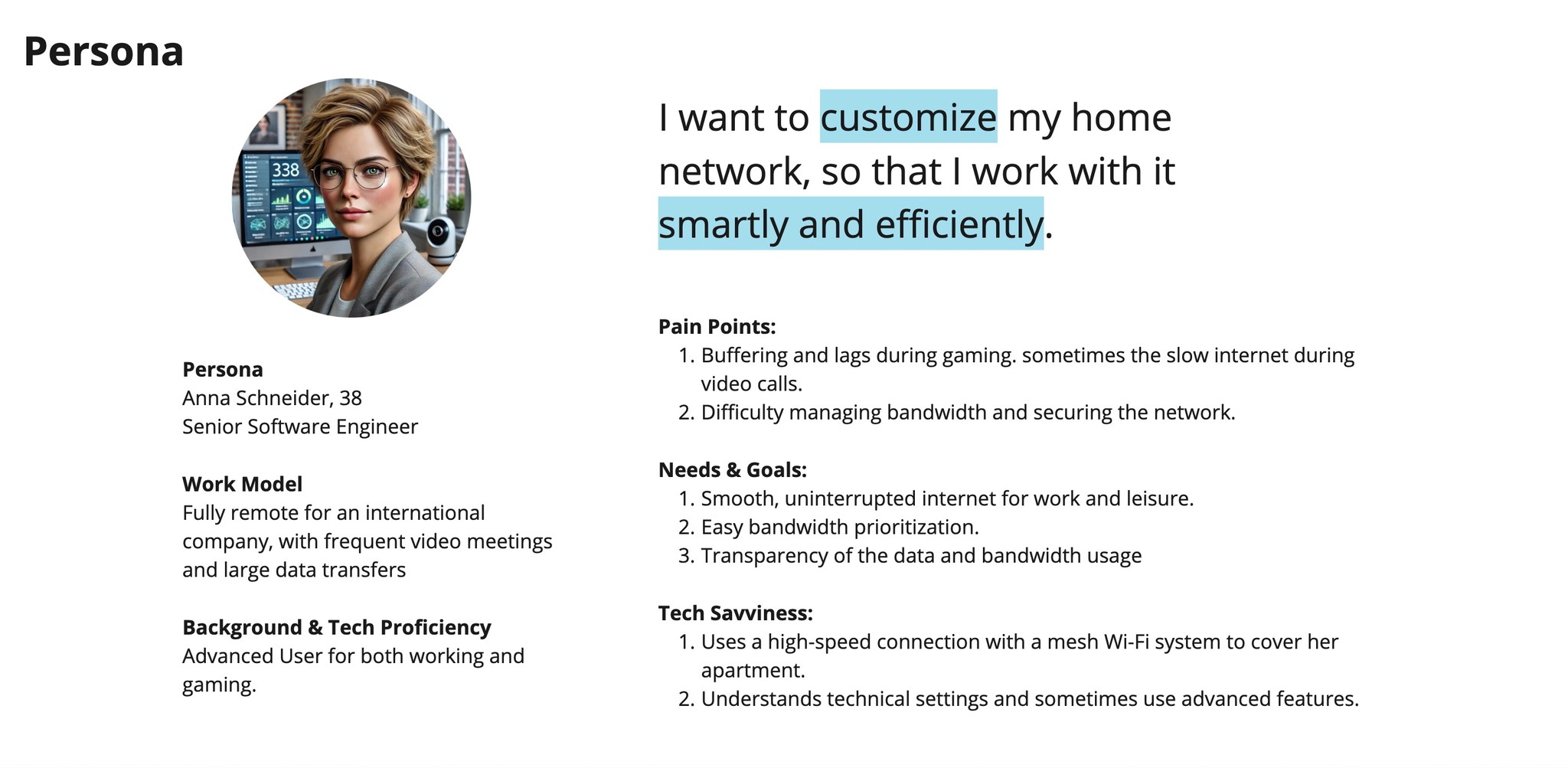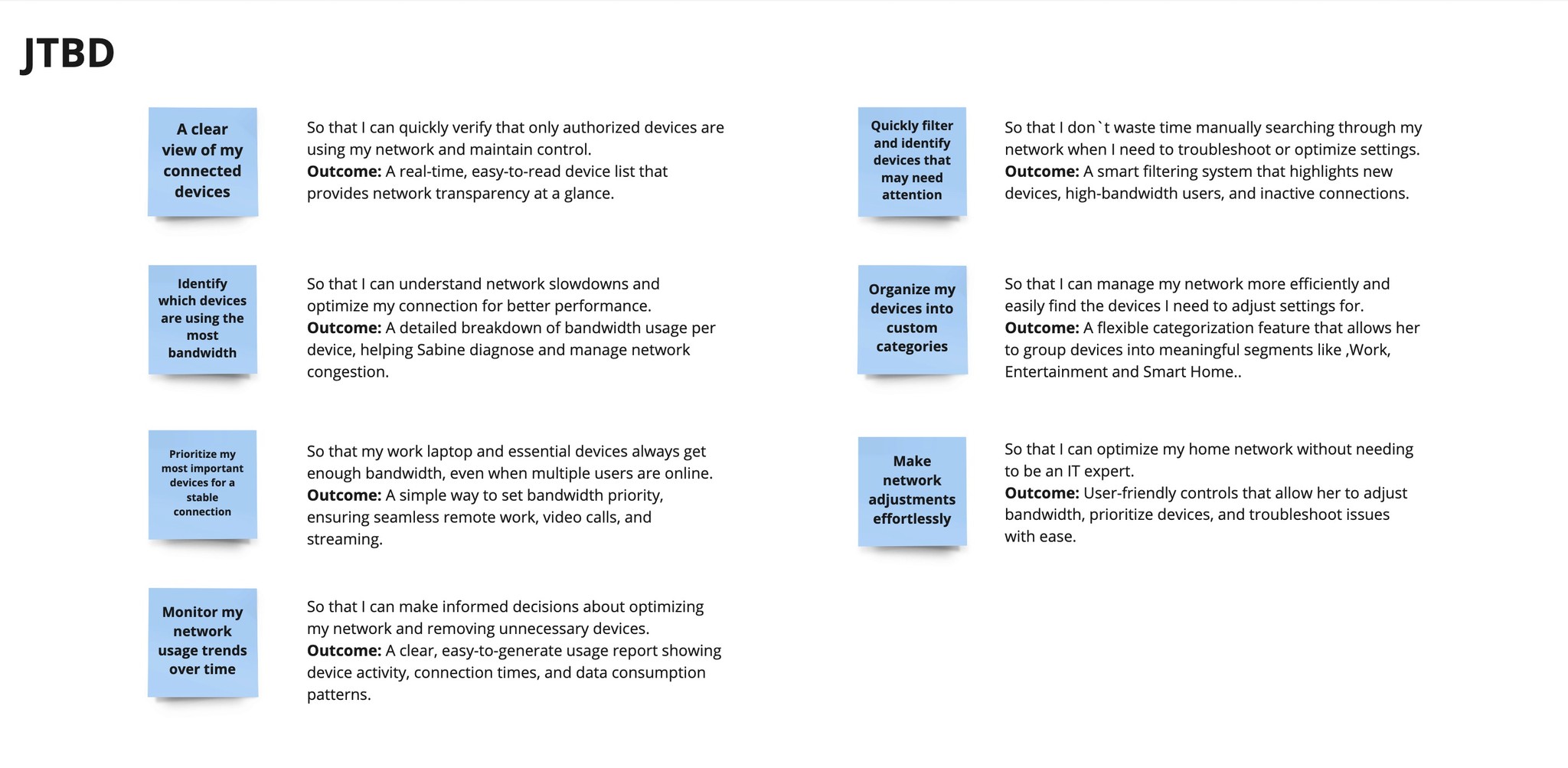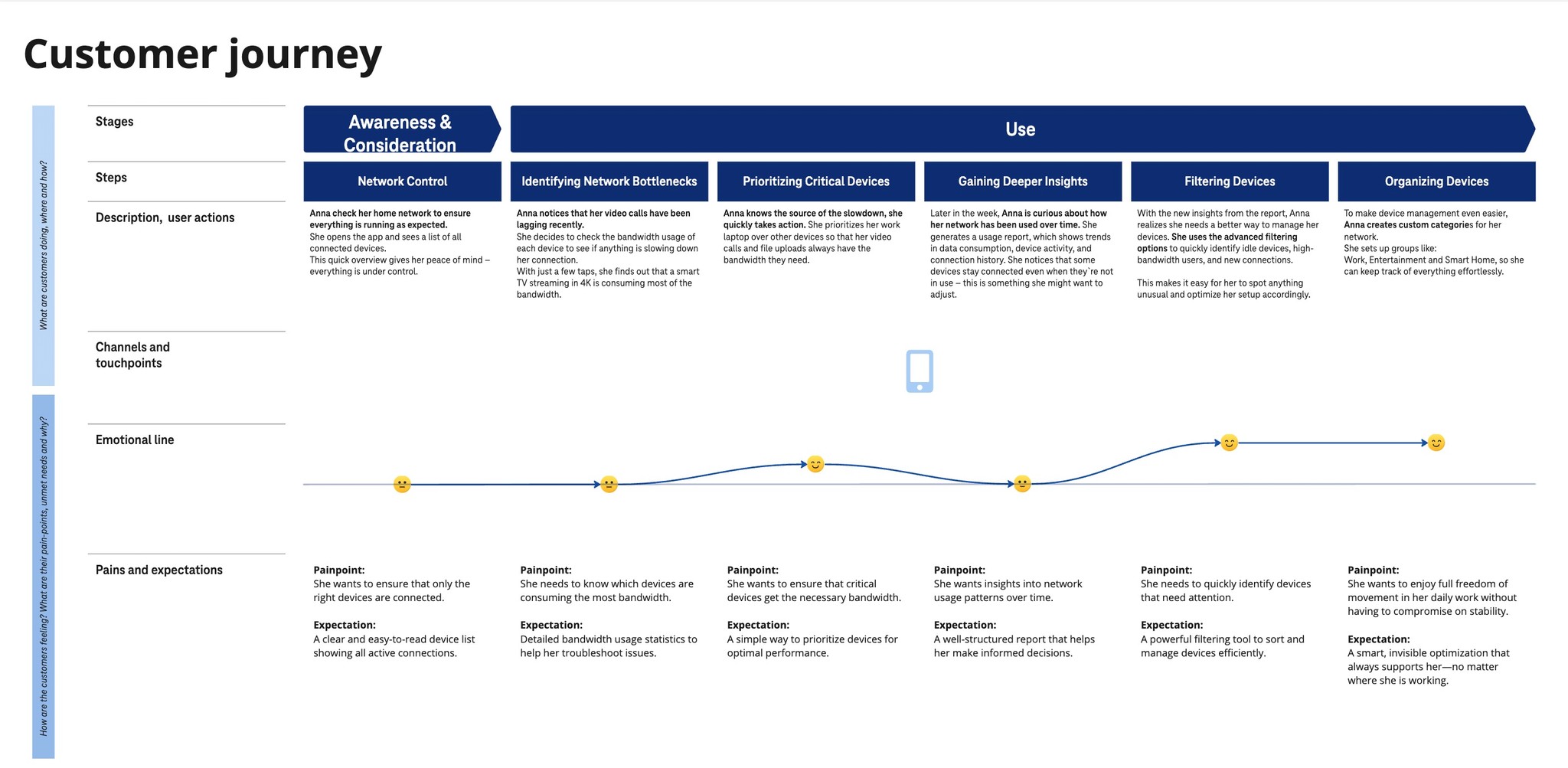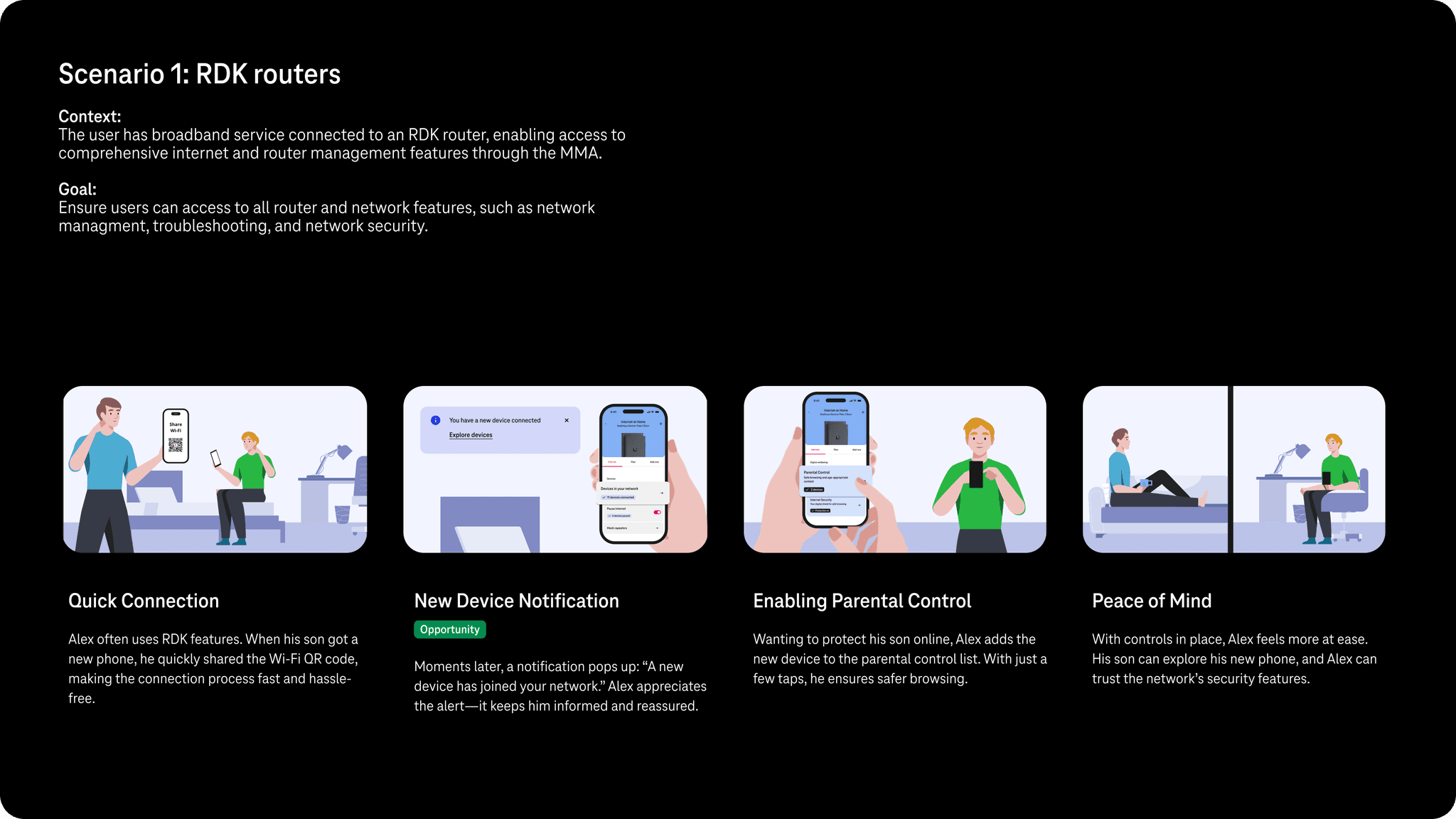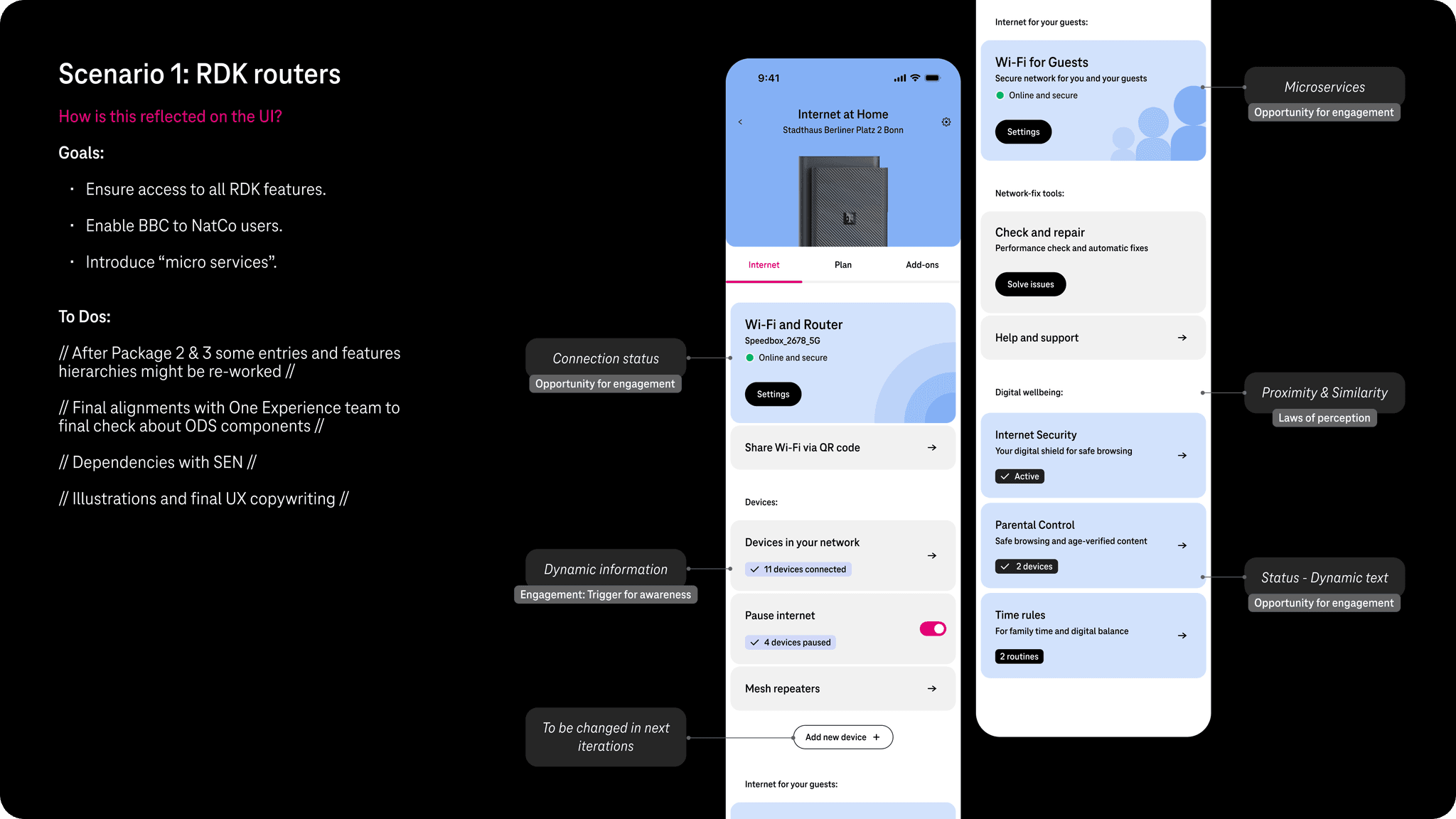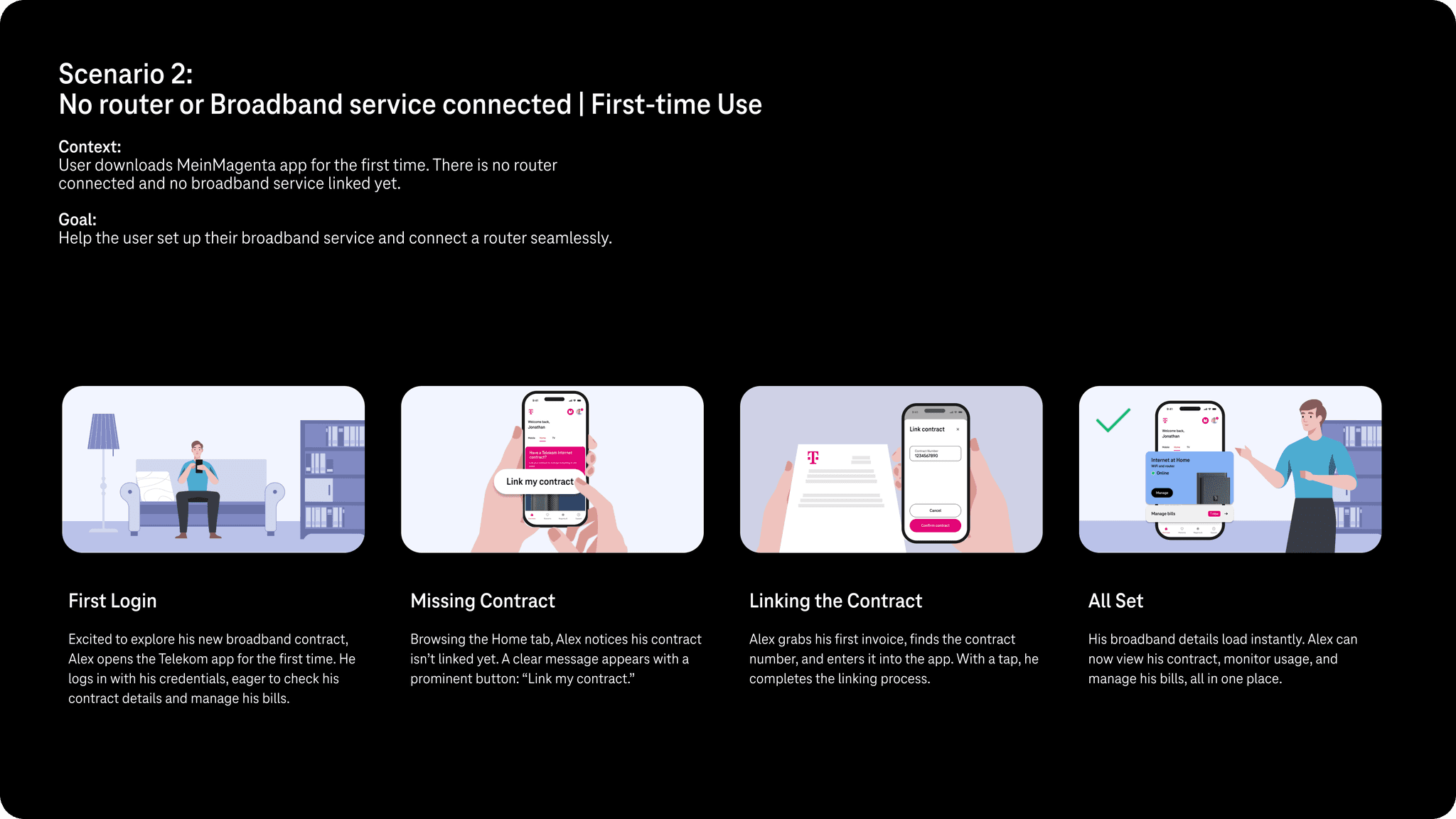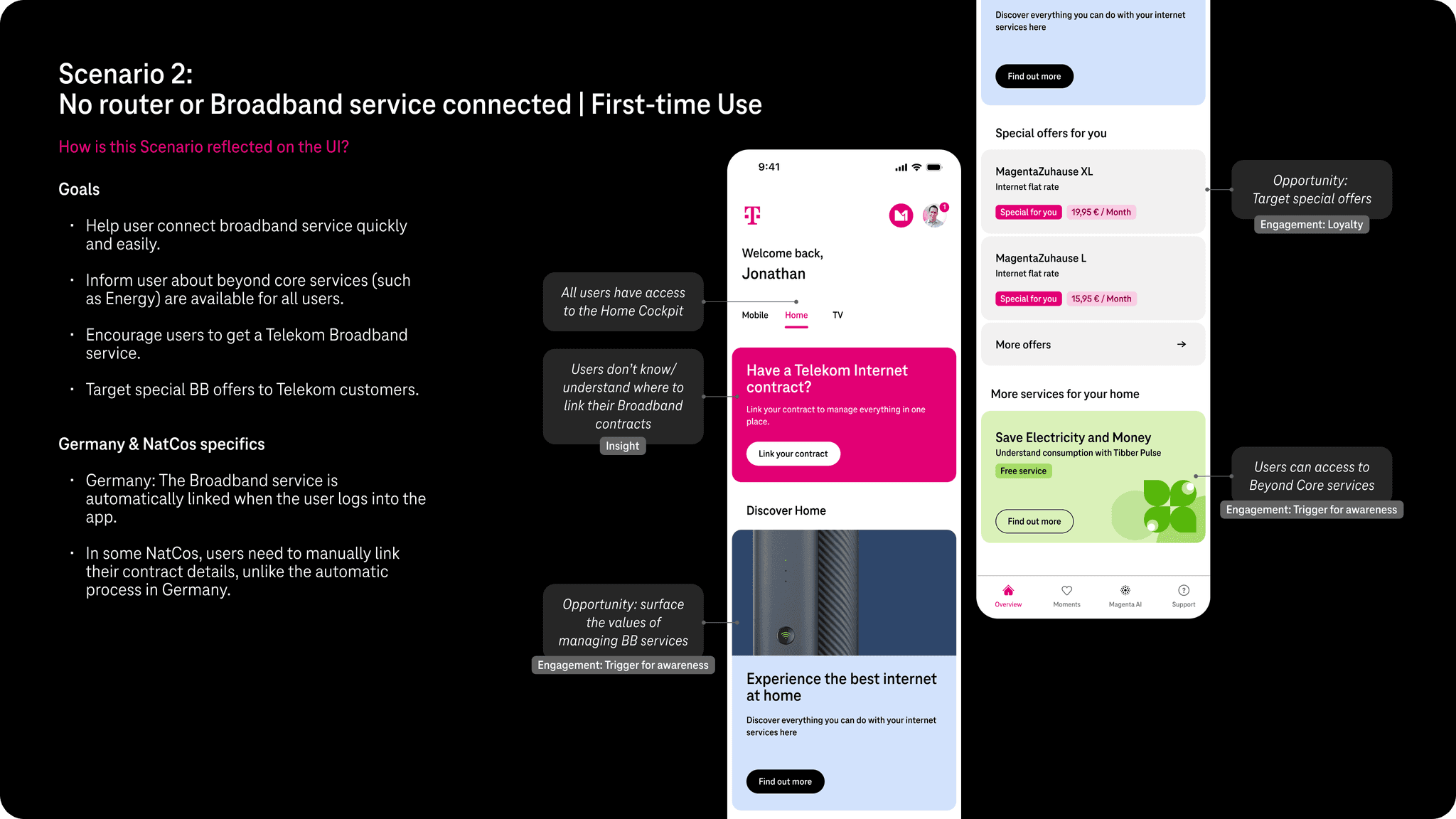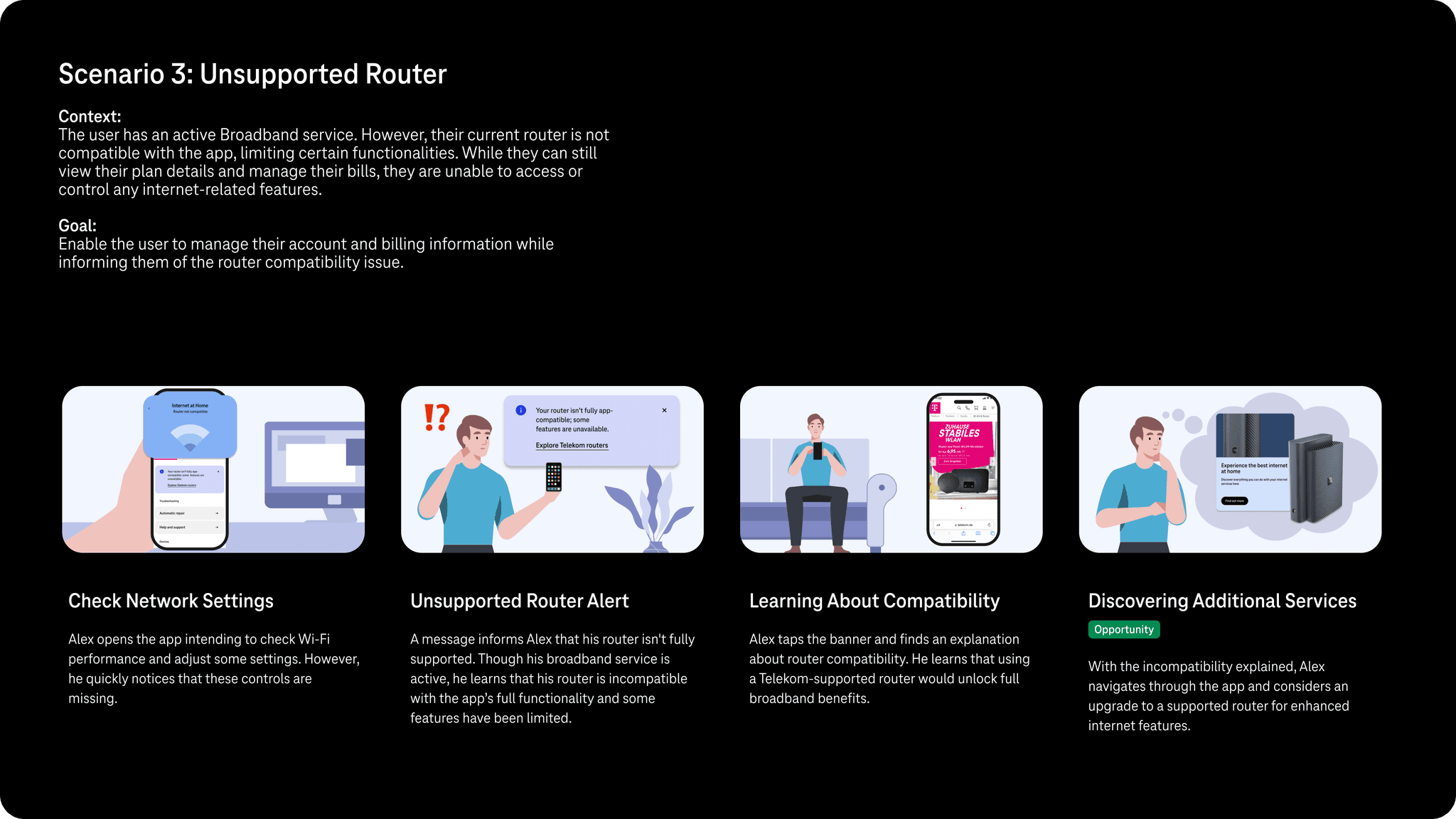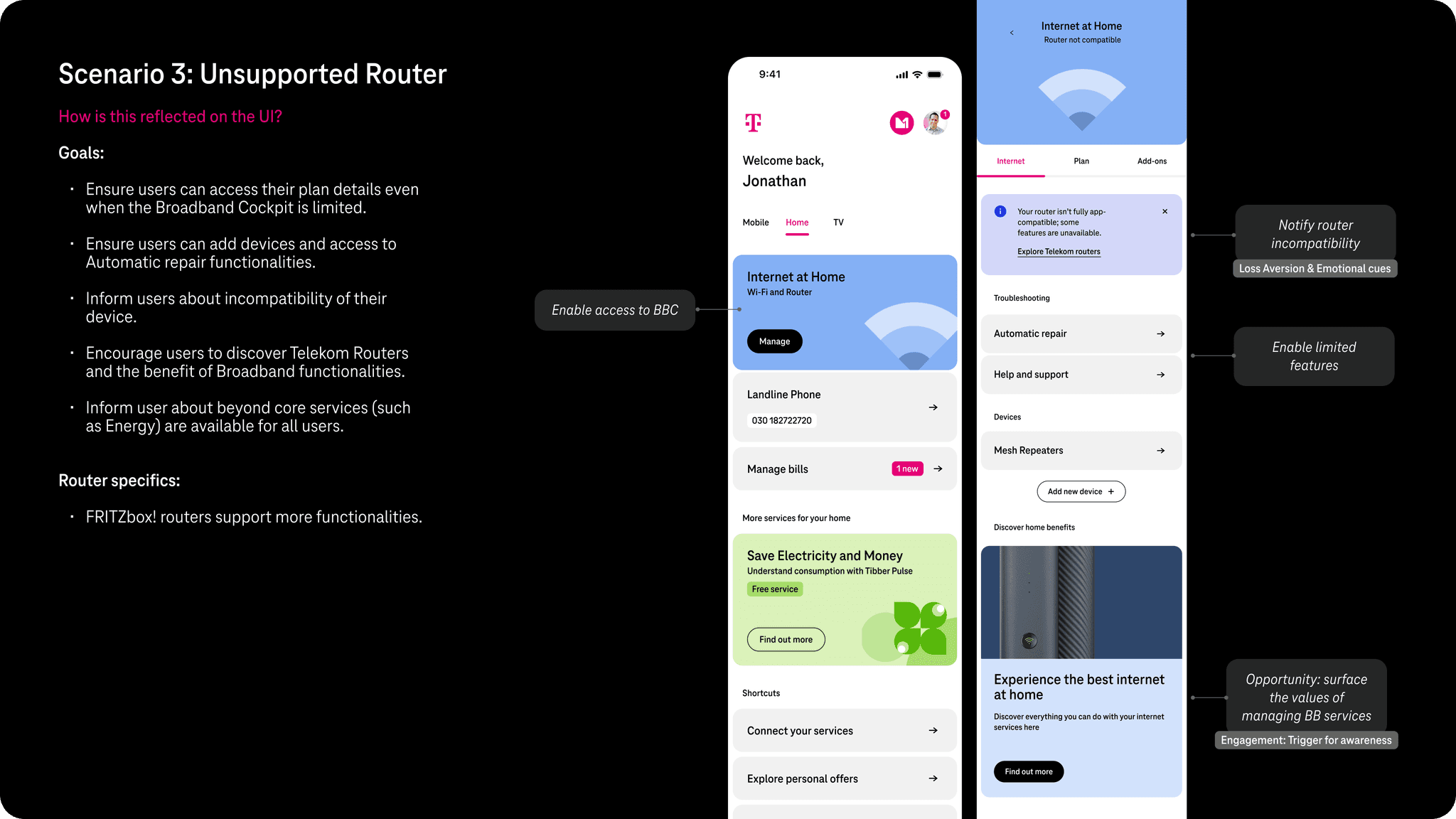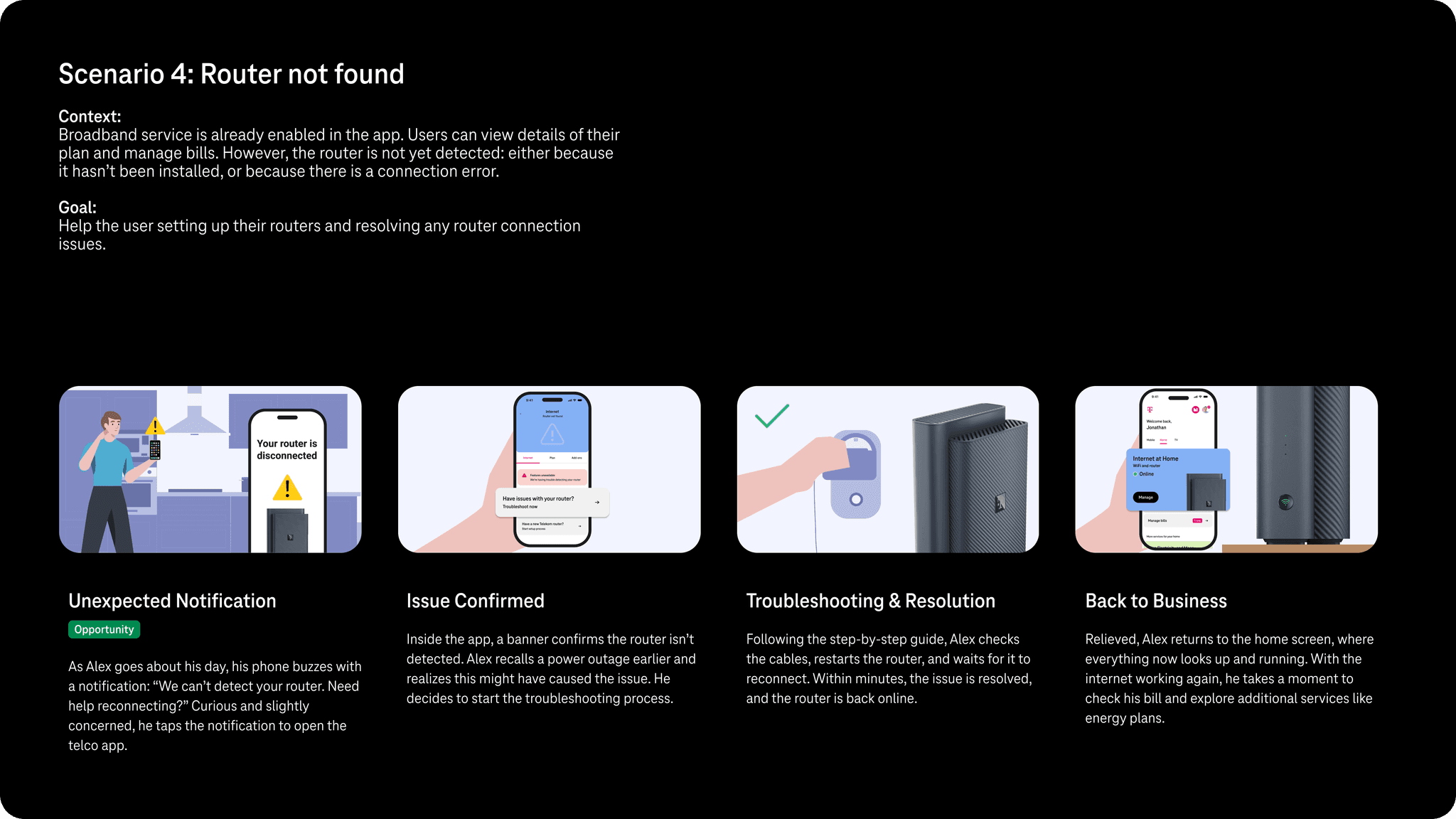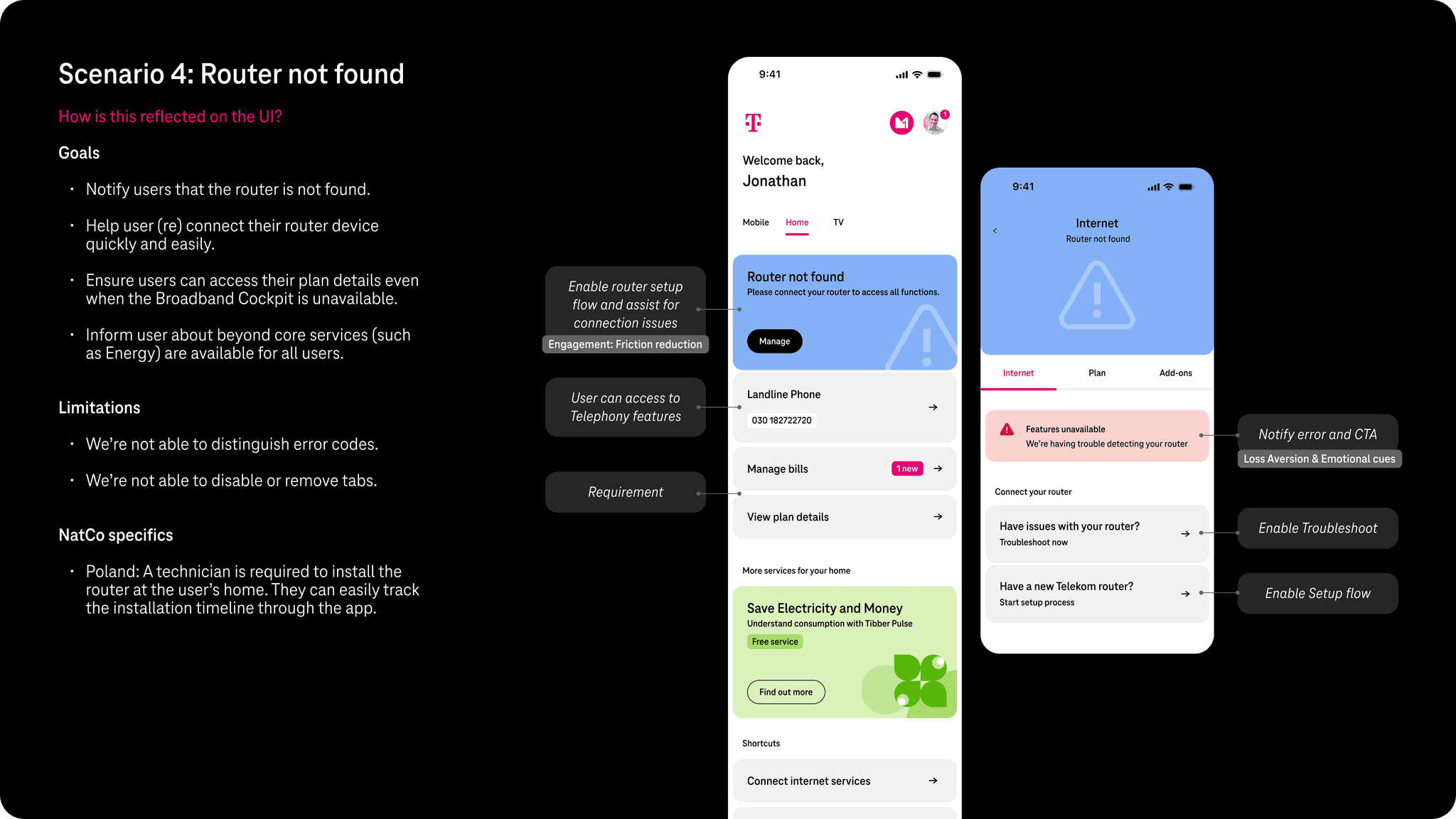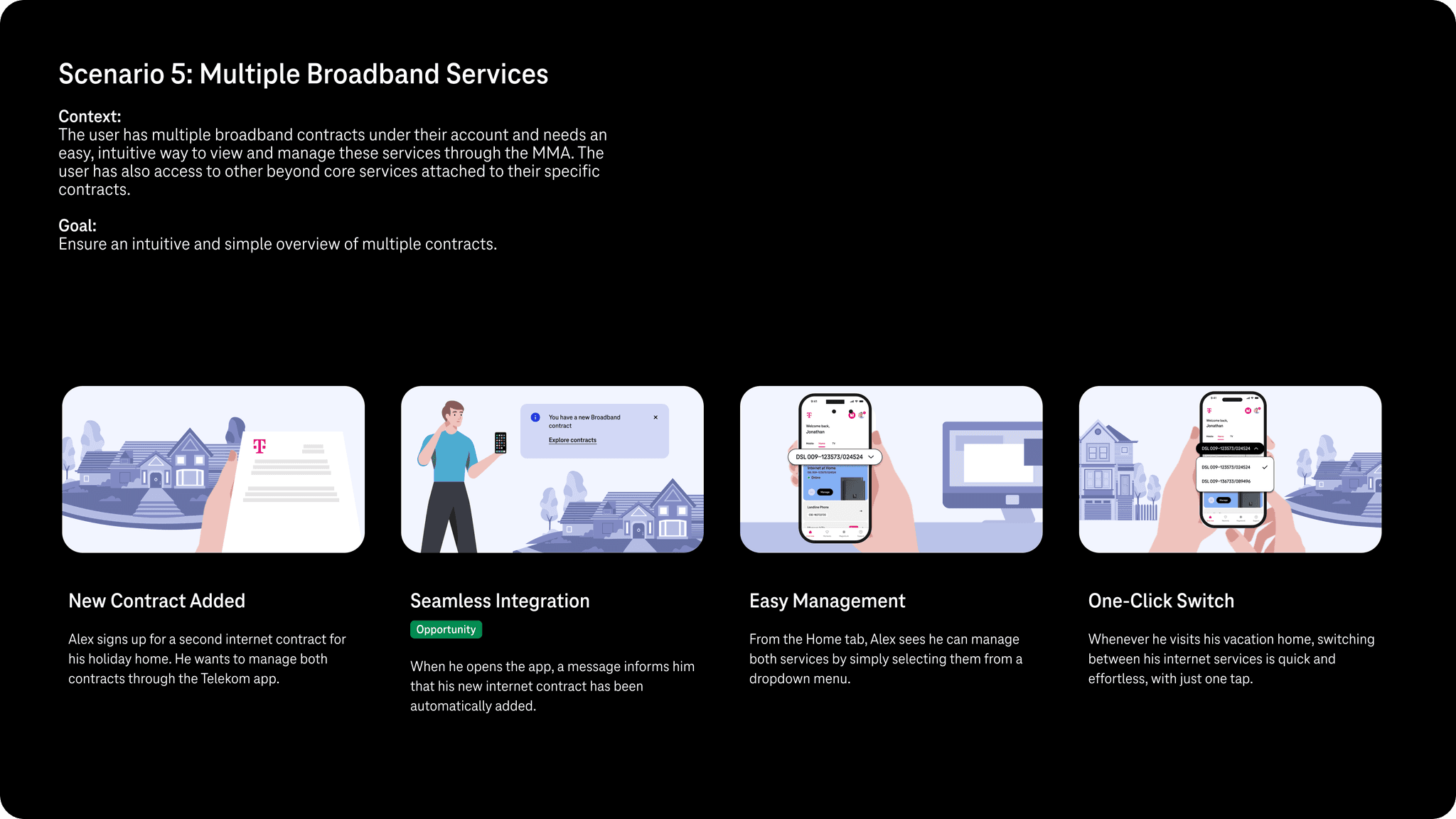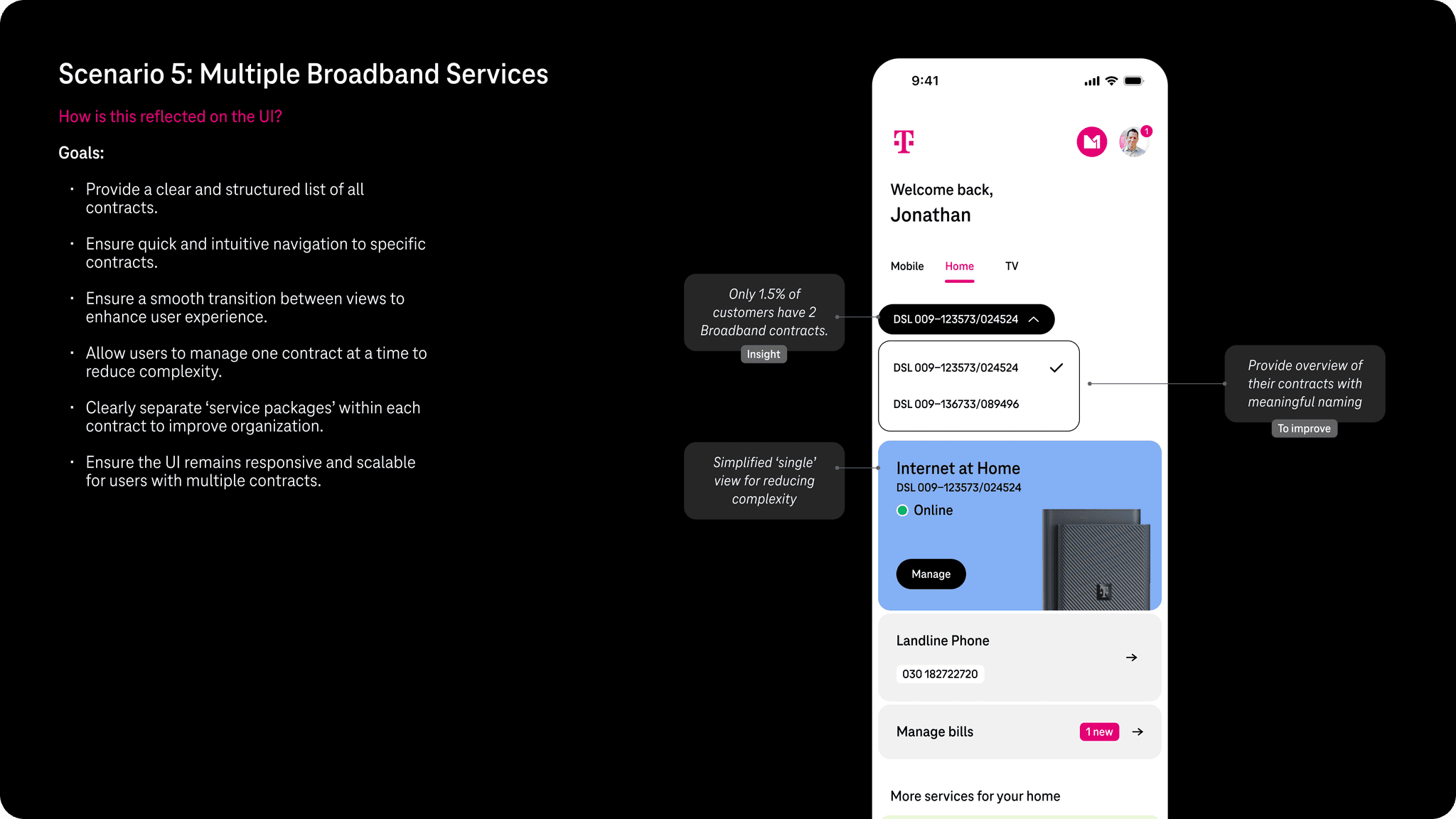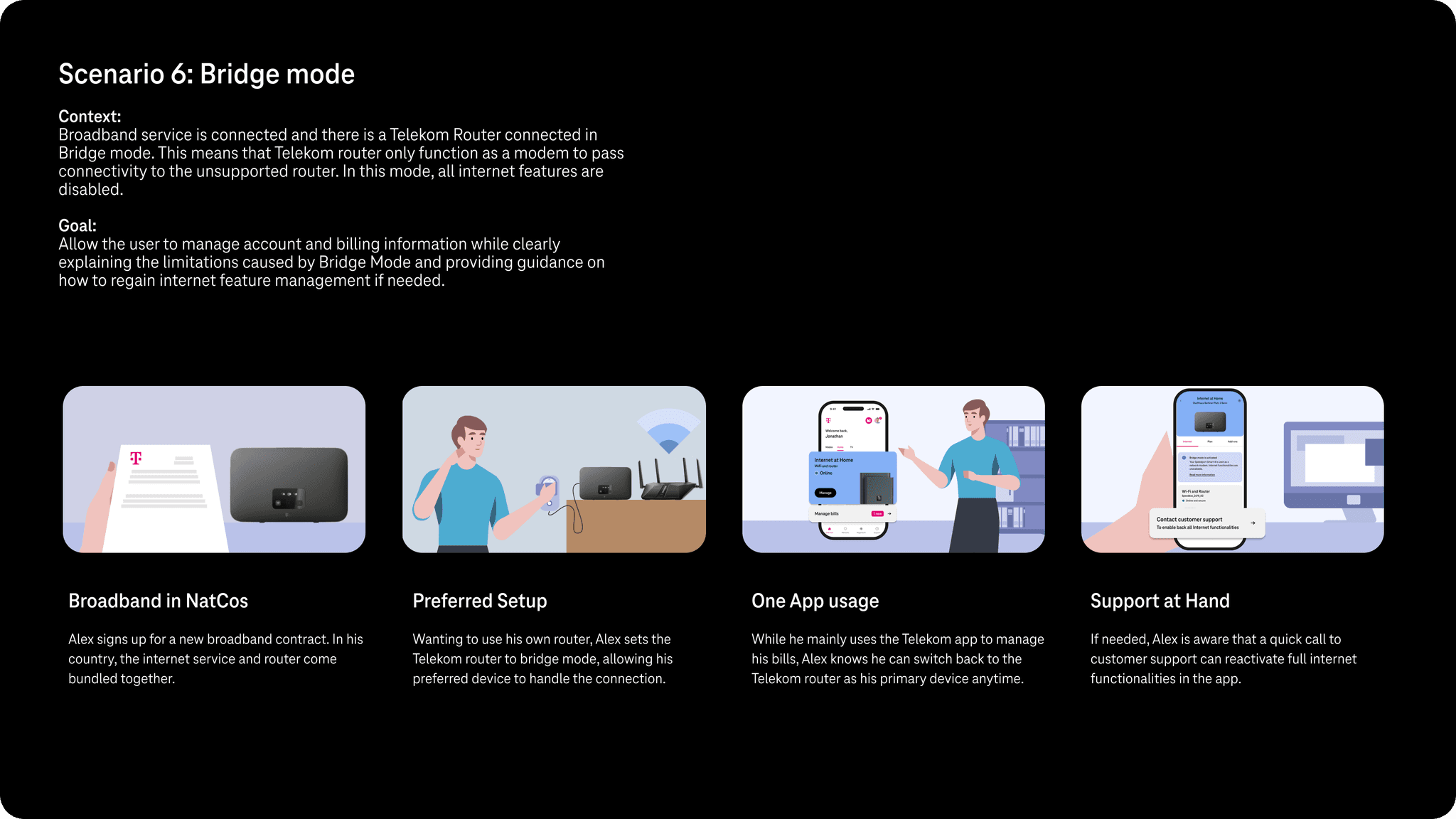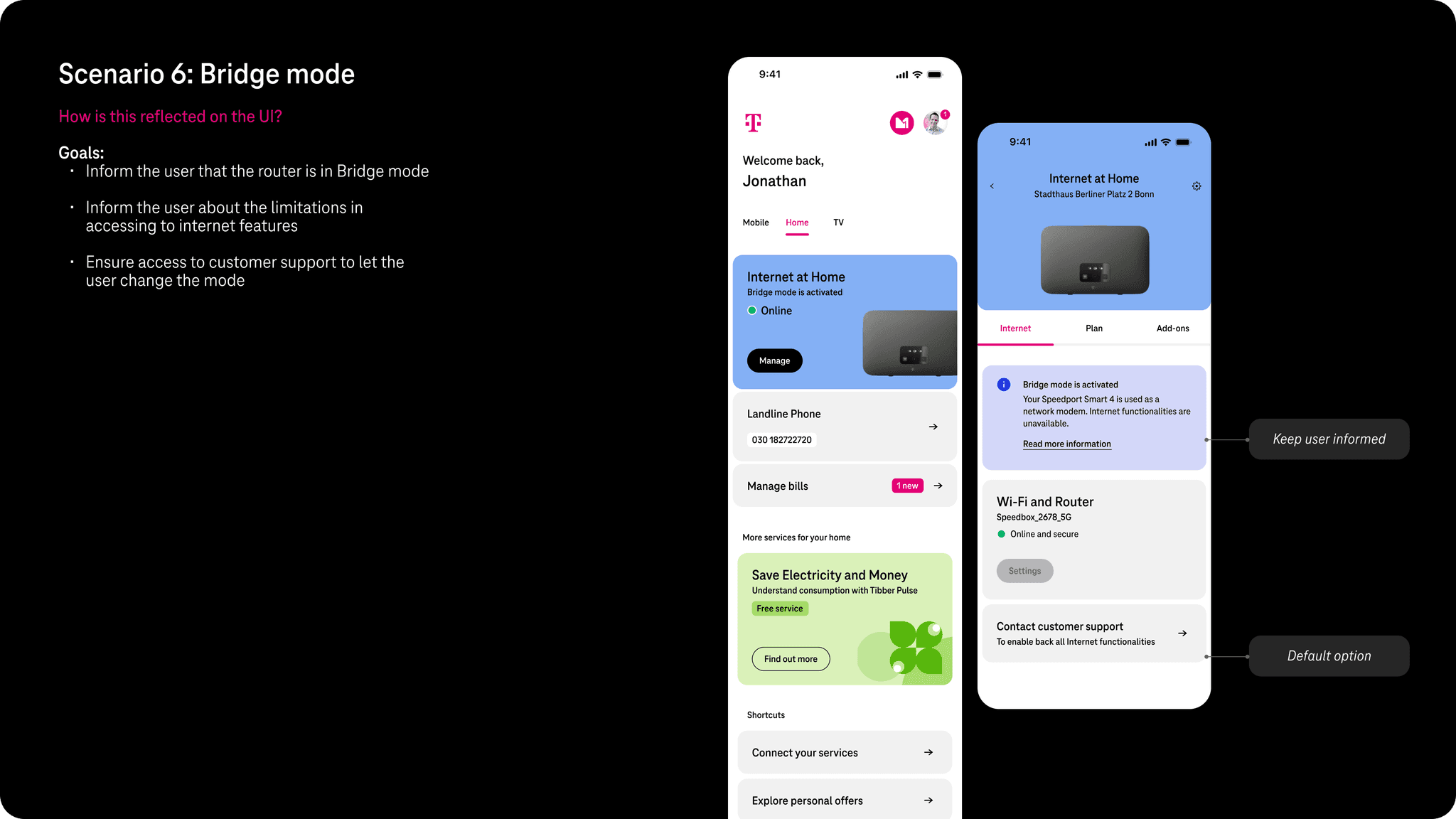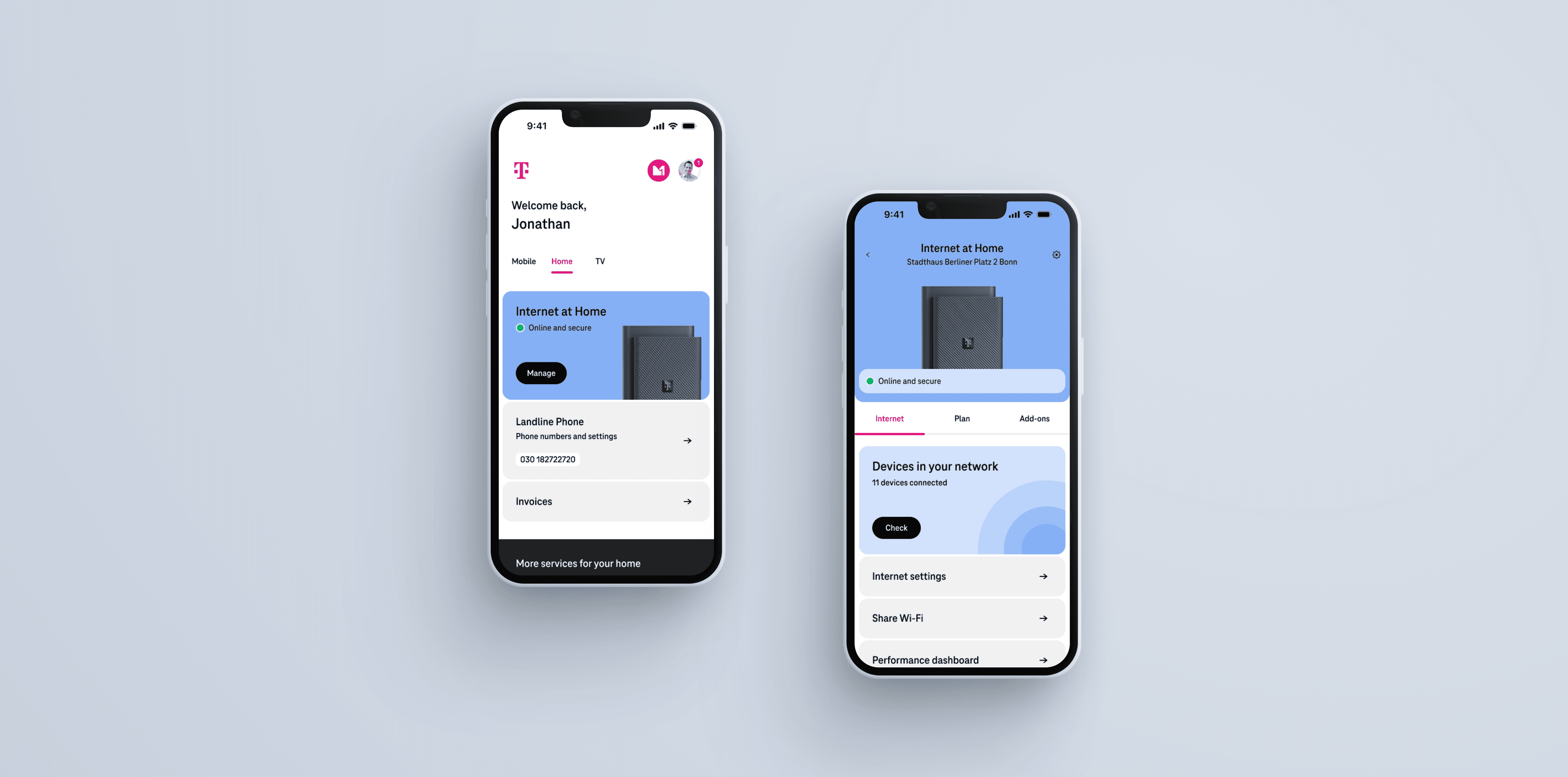
managing your router and home network
COMPANY
Deutsche Telekom
PRODUCT
OneApp
Time
2025.01 - 2025.06
My Role
UX designer
Overview
As one of Telekom’s most essential services, broadband and home network management in OneApp enables users to monitor their home network, manage WiFi settings, and get troubleshooting.
During my time as a UX design intern with Deutsche Telekom’s Home Experience team, redesigning OneApp was the most prioritized topic. I was responsible for redesigning the router core features with two other UX designers.
The new design provides more intuitive interaction and cleaner visuals while also complies with EU Accessibility Act 2025 standards. The delivered design will be implemented in Q3 2025, and the further concept will be constantly refined in the future.
What are the main features of home broadband?
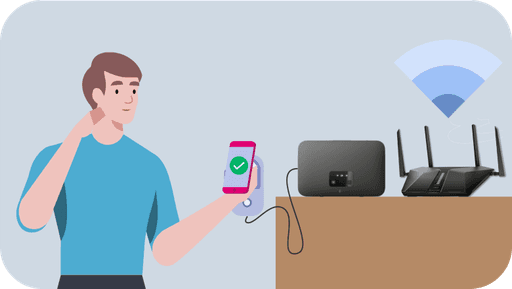
Onboarding
Setting up routers and mesh repeaters, linking the contract
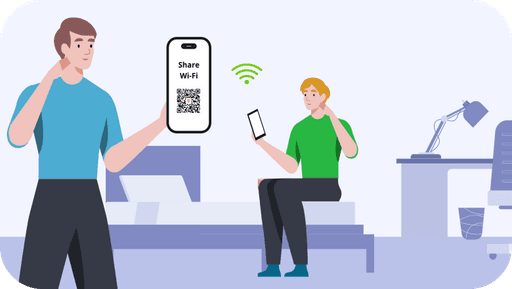
Router core features
Device management, wifi settings, guest wifi, wifi sharing, internet prioritize
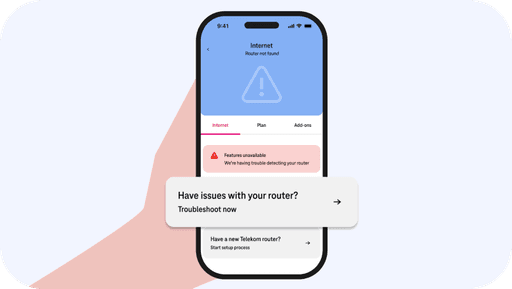
Add-on services
Security, parent control, time rules, trouble shooting
What are the main challenges?
Scenario
complexity
The design varies based on different hardware and different use cases. Too many dependencies with stakeholders.
New design
system
The new information architecture is being refined. And the new design system is not mature.
Limited
engagement
When the router works fine, user never comes back. We need to increase engagement by providing more value.
Research
To understand how to deliver router services in an intuitive and non-technical way to our customers, as well as how to provide additional value to improve engagement, we conducted comprehensive research and got some key insights.
Research plan & methodologies
To understand the previous app's problem - Task analysis of current apps
To understand users' behaviour of router management - User data analysis
To identify how we provide better experience than other competitors - Competitor products analysis
To understand how we integrate clients' technologies into our product - Partner product research
To find out if the design is valuable - User testing
Problems in the current app
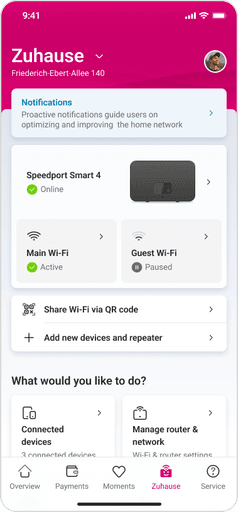
520k
Screen visitors
Feb - Mar 2024
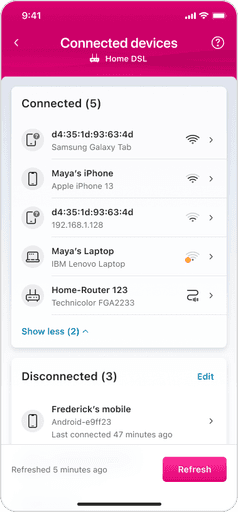
180k
Screen visitors
Feb - Mar 2024
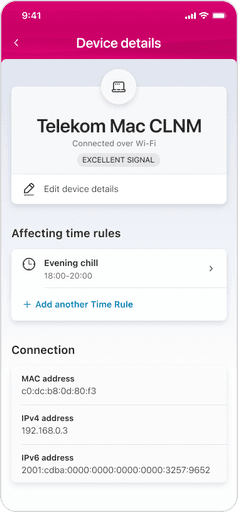
90k
Screen visitors
Feb - Mar 2024
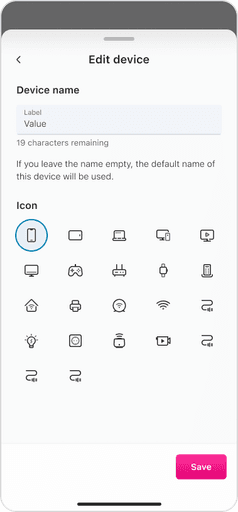
9k
Screen visitors
Feb - Mar 2024
High cognitive load in the screens, makes it hard to navigate, neither friendly for key board navigation.
Techy language and tedious visualisation. Not informative in showing how devices are connected.
Less and less engagement in further steps. Many features were hided from users to explore.
Insights from customer data
The user's biggest frustration comes from the lack of transparency in the status of their home network. For example, when WiFi is disturbed, the user doesn't know the reason and how to solve it.
Users also feel anxious due to the lack of control over their network, such as when unknown devices connect to their home network or when multiple devices share bandwidth simultaneously.
The new information architecture was mapped after analysing the feature engagement data.
Data from surveys and internal reports
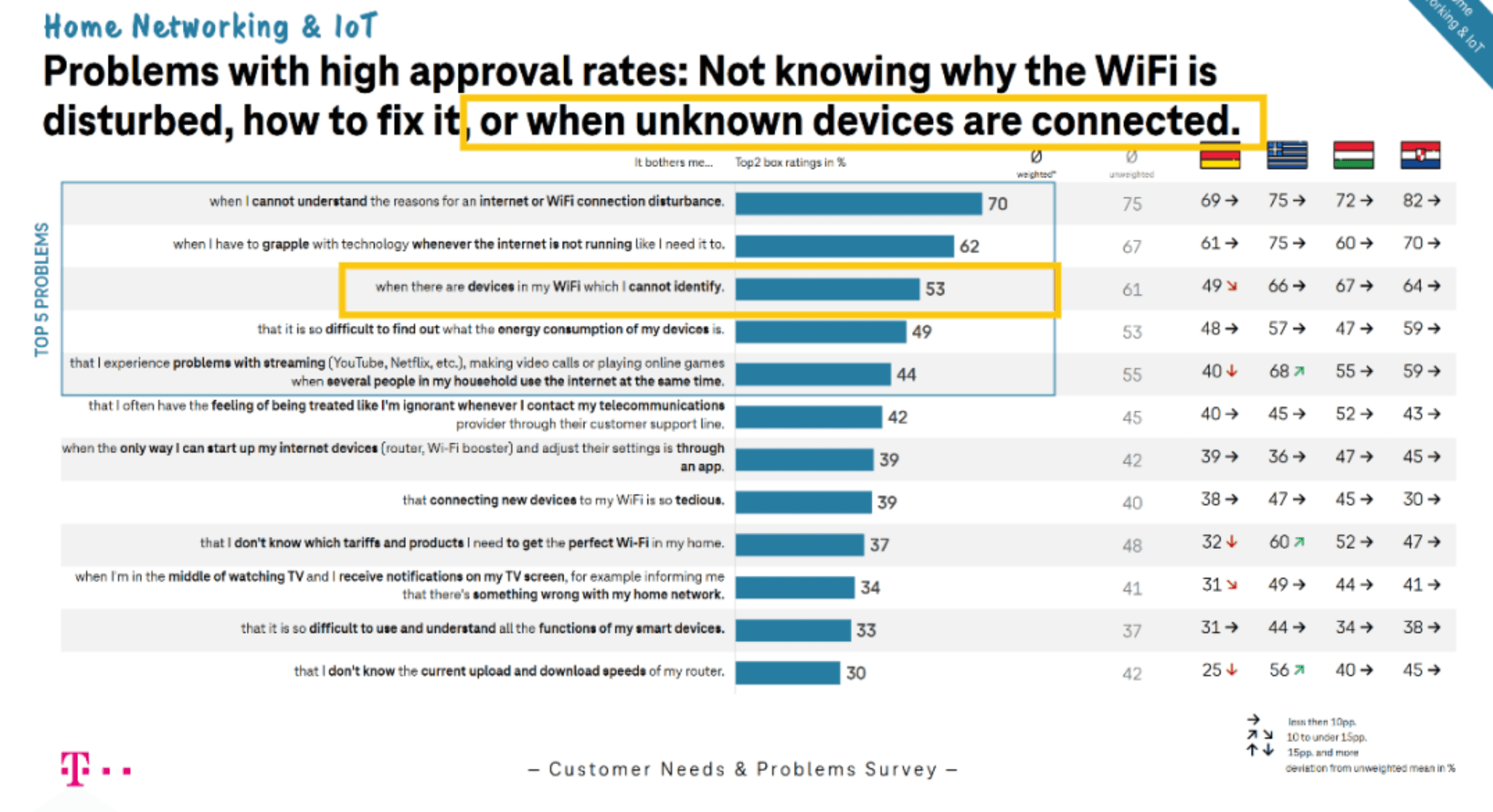
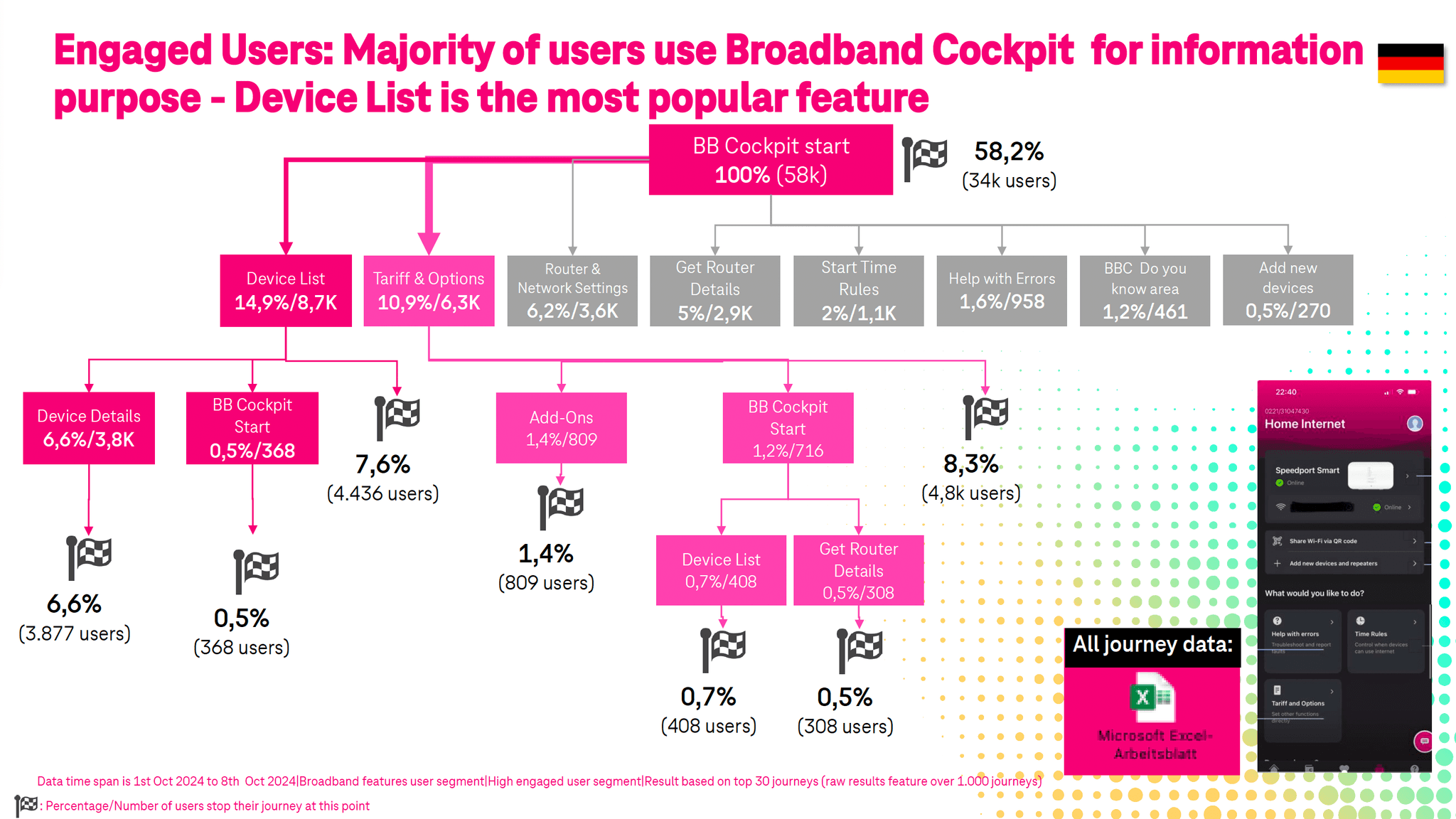
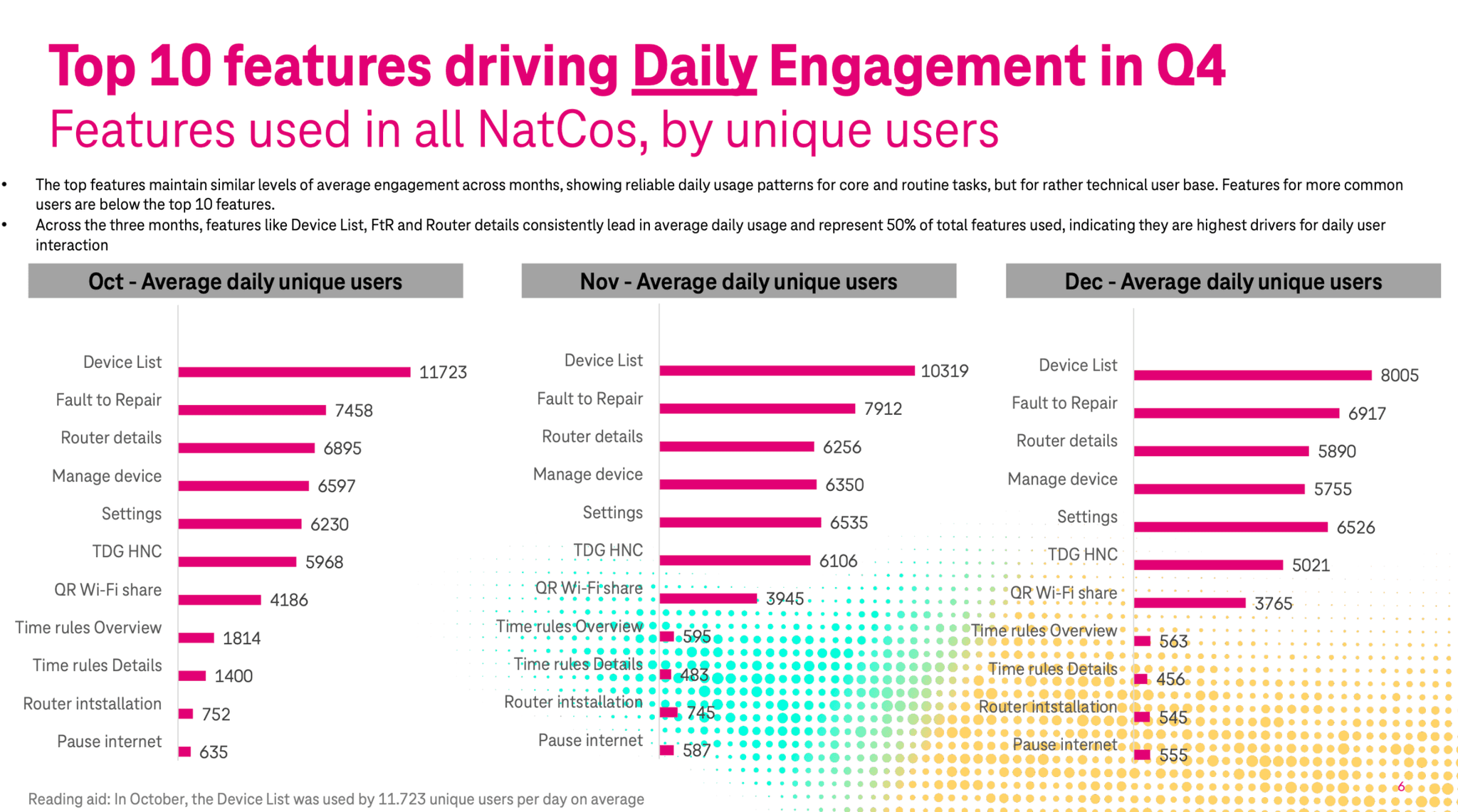
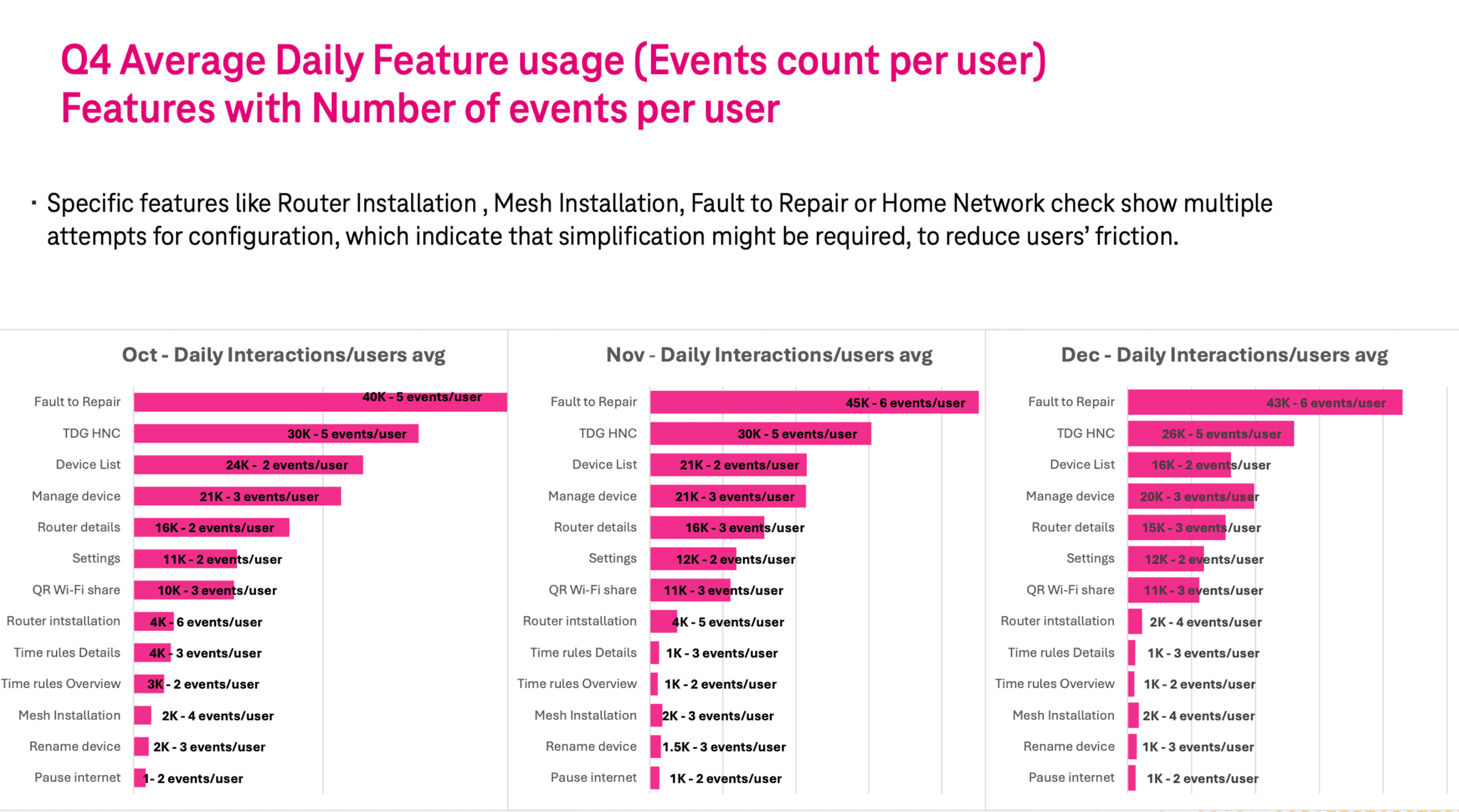
The new information architecture
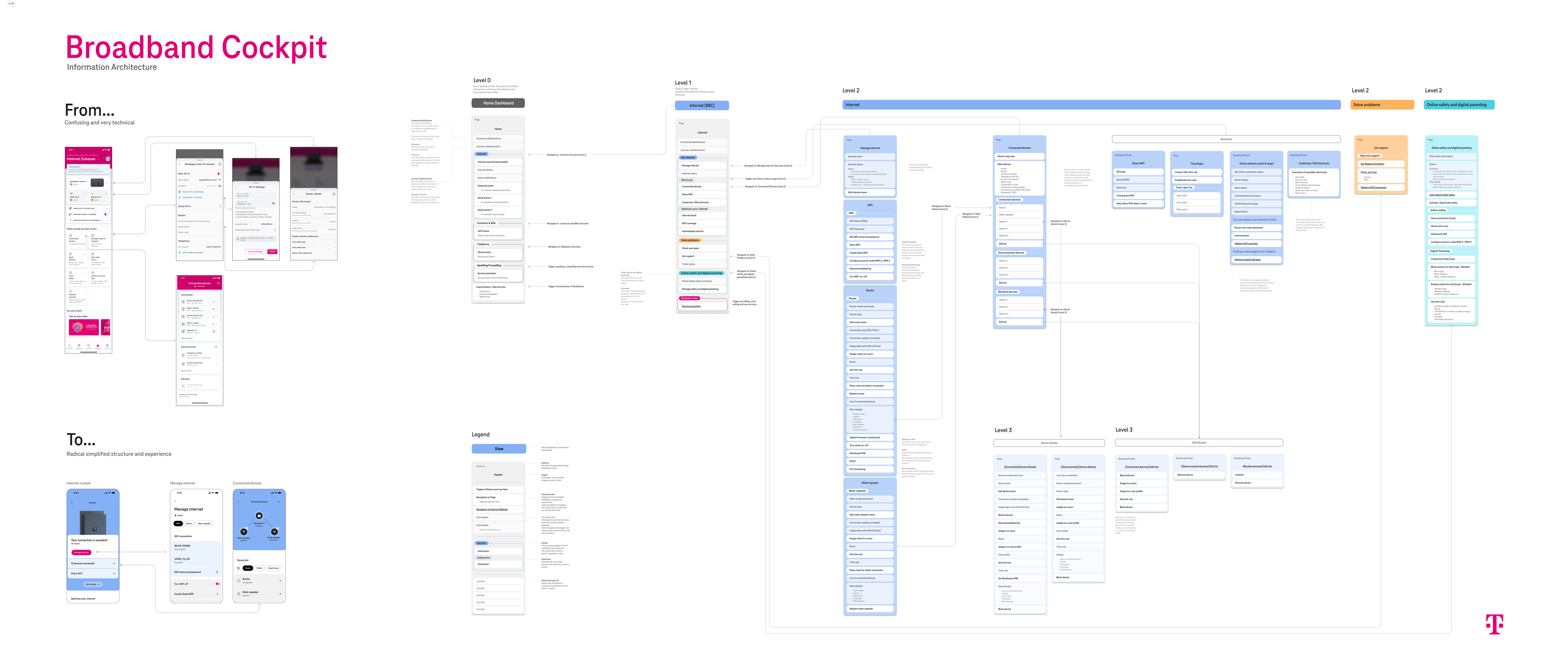
Insights from competitor analysis
Connected devices list: competitors have very different ways to group the device and to show the status of devices.
And with the partnership with Cujo AI, who enables the router to identify the detail information of the connected devices, including name, type and category. Thus, we can provide a stronger filter to help user better identify and manage the devices.
Network prioritization: most competitors don't have the network prioritization function.
And we have partnership with Netduma, who provide advanced technology in boosting internet. We will use it maximise the router experience by covering more use cases.
Internet usage statistics: most competitors don't have the internet usage statistics.
With the parntership with Cujo AI, we will be able to monitor customers' data usage and generate insights for them to increase transparency, for example, the gaming time of family members or one specific device.
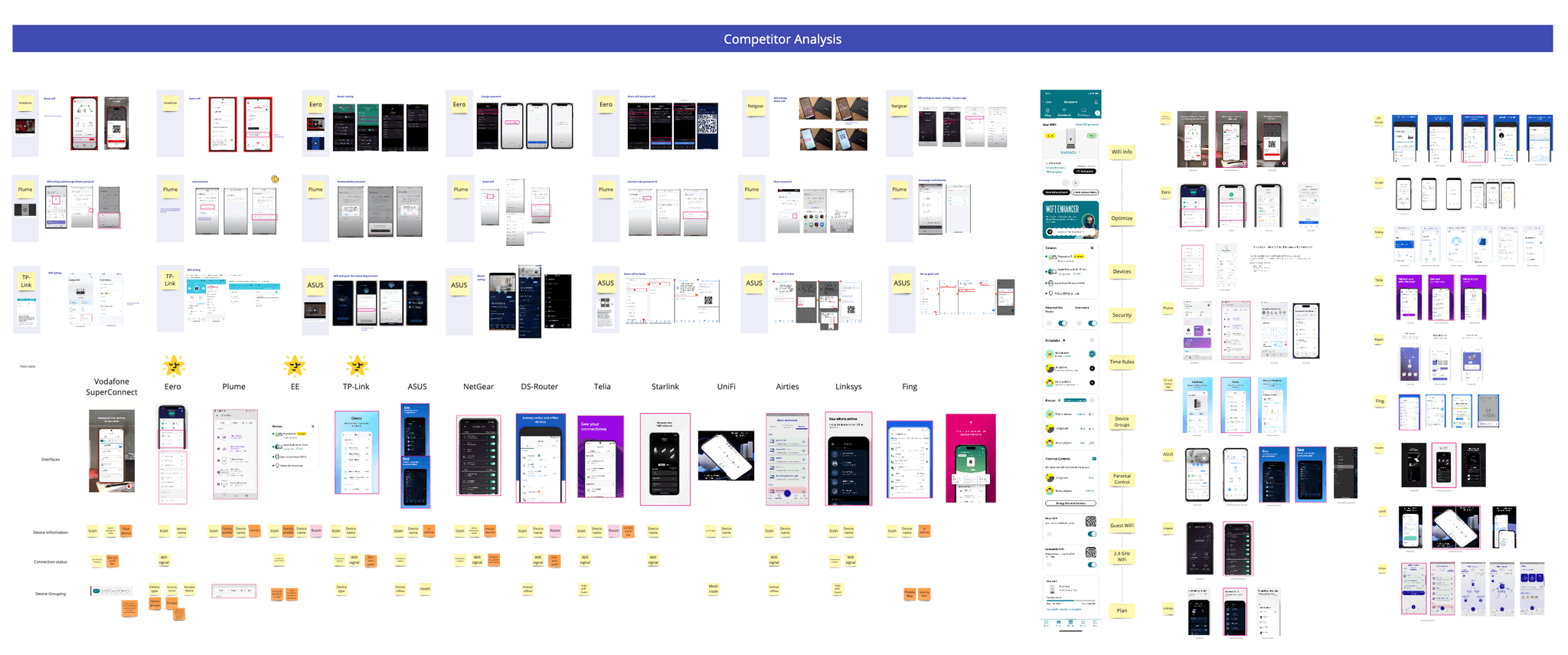
Insights from partners
With Cujo AI, we can get name, type, traffic, wifi signal, bandwidth, timestamp, connection issue diagnosis and even the security threat from connected devices. In a nutshell, it's easy for us to create strong profiles for the connected devices.
With Netduma, we can use AI to optimize the speed based on different use cases. For example, under the gaming mode, all of the game related activities on all devices are boosted.
Design strategies
To reduce the cognitive load, we use a minimalist design with a clear information hierarchy, which is easy to navigate. Also the design is checked to meet the accessibility standards.
To make the interface intuitive for non-tech-savvy users, we simplified the features and prioritized value-added services that differentiate us from competitors.
To guide users to explore more features, we use contextual notifications and proactive micro-journeys, which can increase the engagement.
As is
To BE
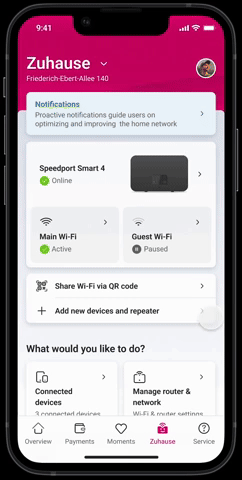
Complicated information hierarchy

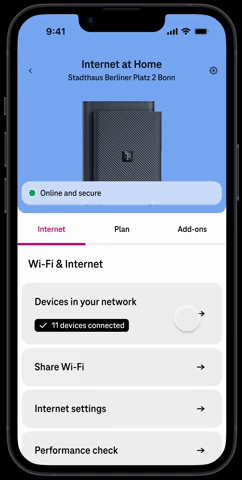
Simplified structure and minimized visuals
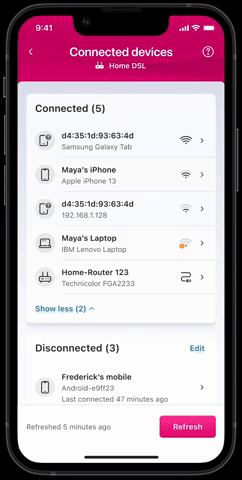
Limited information communicated

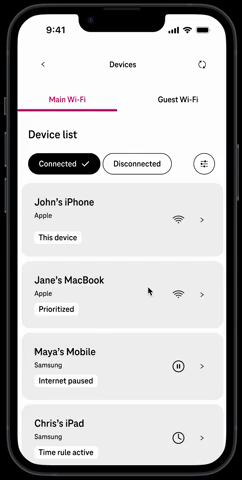
Contextually show the device status and better organized information
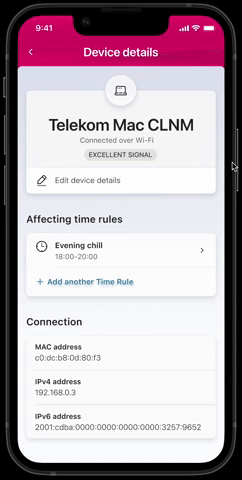
Limited features that didn't appeal users

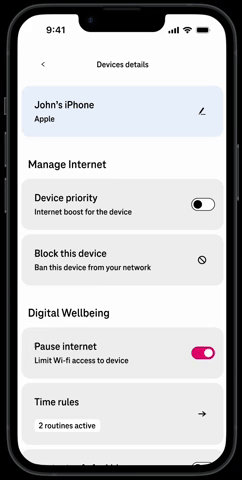
Prioritize more valuable features and provide data insights
Ideation
To understand how the customer interact with the new product and to explore design opportunities, two different personas were created with jobs-to-be-done and customer journeys. One presents the non-technical user who values transparency and security. The another one presents the advanced user who values network quality and efficiency.
The features we can design now
Device profile
Smartly generate profile for devices and allow users to customize, so they know what's connected and who's using it.
User profile
Create user profiles and assign devices to them - so the devices can be better managed with parent control and time rules.
Advanced Filtering
Advanced filtering helps user quickly find what matters – so they can identify, manage, and optimize their network in seconds.
Usage Report
Usage report provides a clear, detailed breakdown of data consumption, device activity, and connection history.
Instant Device Alerts
Stay in control with real-time notifications - when the device connection goes bad or when a new device connects to your network.
The features we will design in the future
Topology View
Topology View provides a clear, visual map of all connected devices in your home - so user can see how devices are linked and then identify weak connections.
+1 Wifi
Create extra networks based on scenarios, not just main wifi and guest wifi. Kids' wifi, work mode wifi, entertainment wifi or smart home wifi.
Custom Categories
With Custom categories, it's easy to organize devices into work, entertainment, smart Home, or user' own personalized groups – or let the system suggest categories based on usage.
Home Status Widget
The Home status widget gives instant access to device activity, network performance, security alerts, and even motion detection.
Smart Home Control
With OneApp, user gets access and manage smart devices, lights, thermostats, security cameras, and more.
As the most crucial touchpoint, the broadband dashboard (cockpit) was mapped with different scenarios.
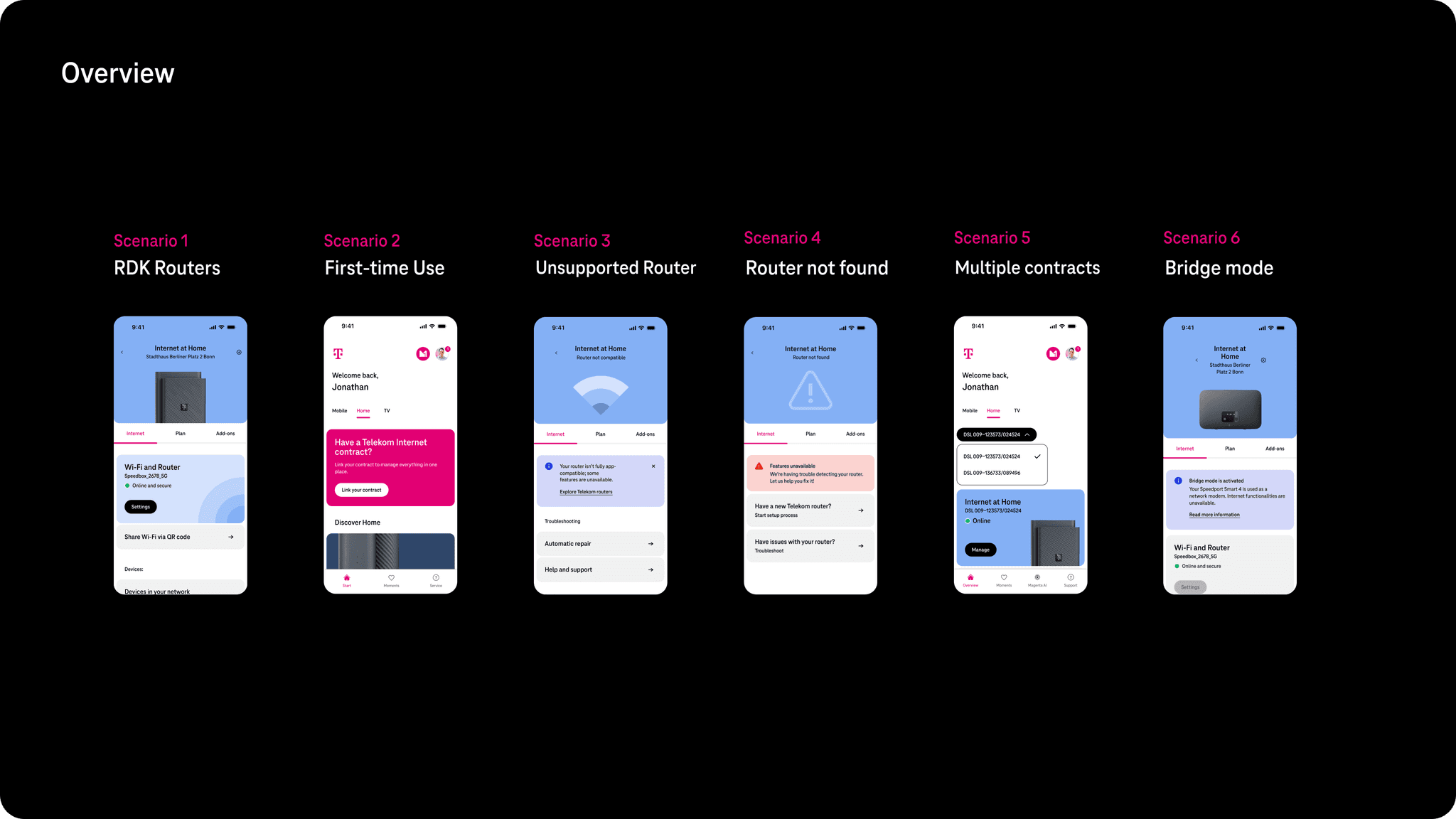
Design output

innovative Concepts
Topology view
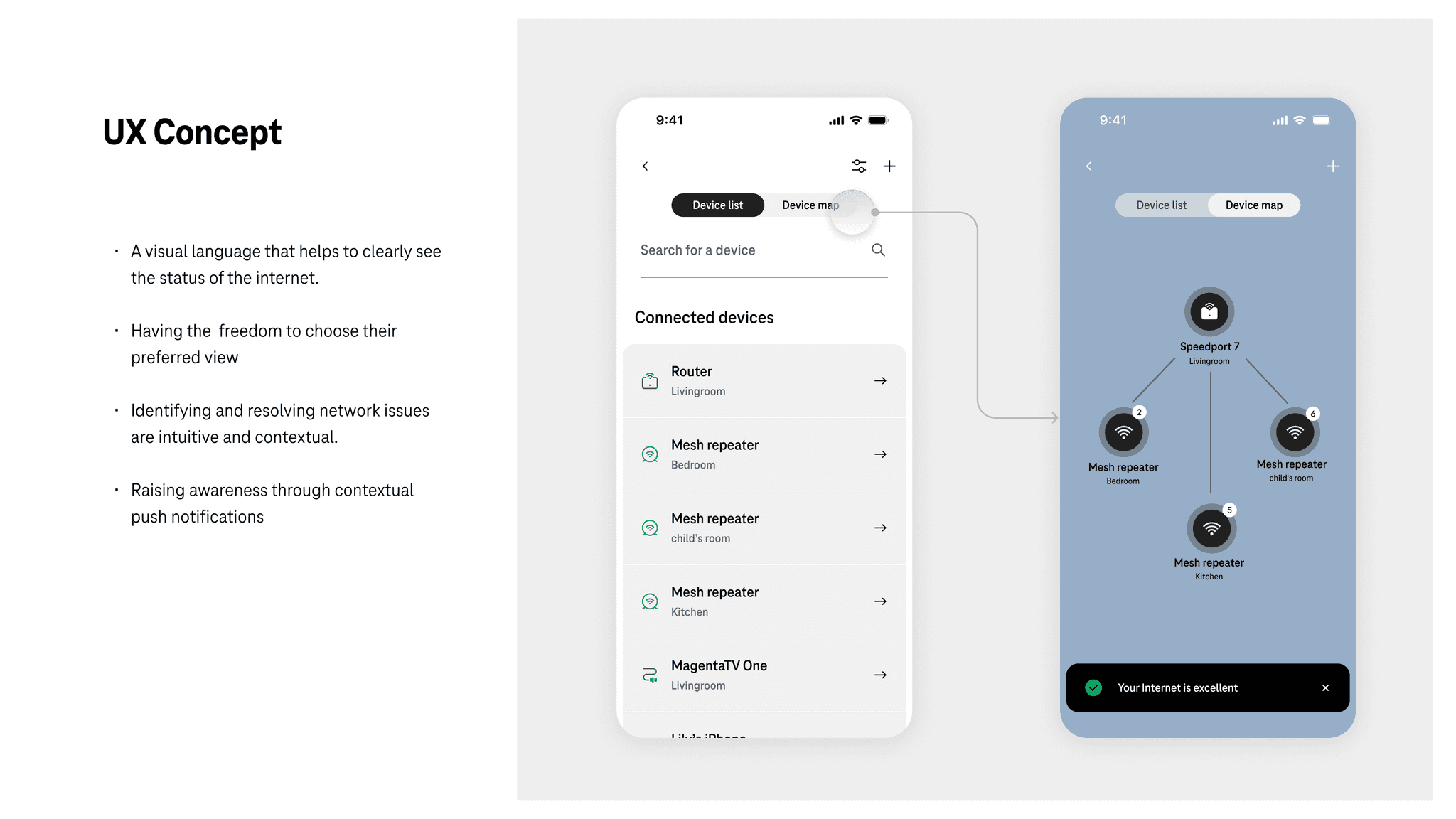
Identify the new connected device
With a better visualisation of connection, user can manage the connected devices easily

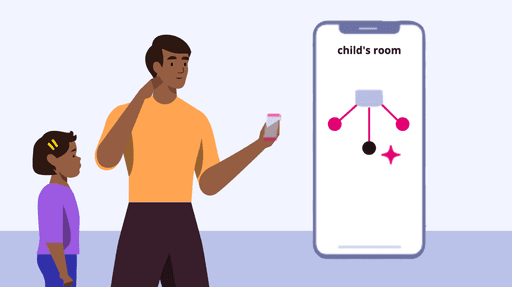
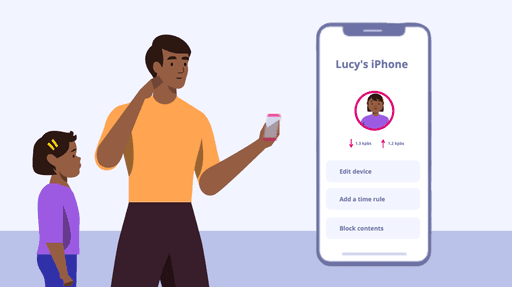
Locate where the problem comes from
When error happens, user goes to the topology view to locate the problem and get trouble shooting
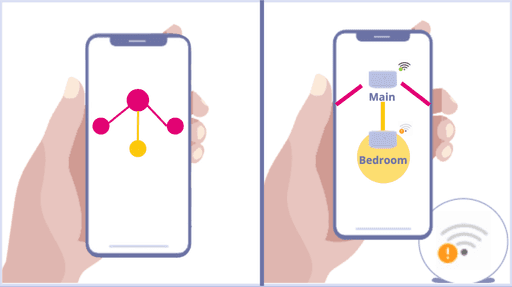
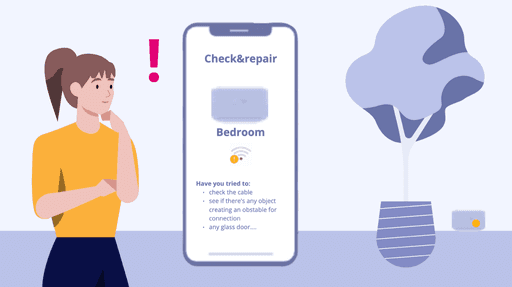
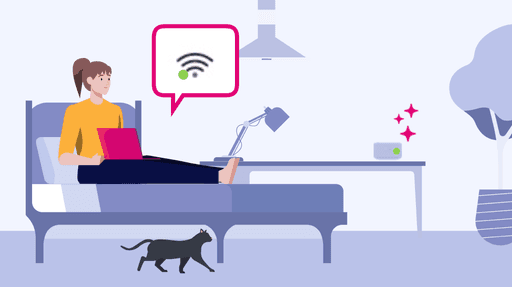
Boost your Internet
When multiple devices are competing on the bandwidth, the topology view informs user the traffic conjunction and help to optimise
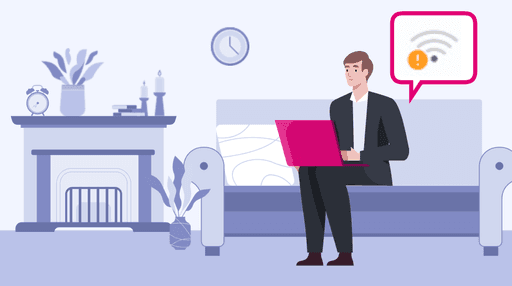
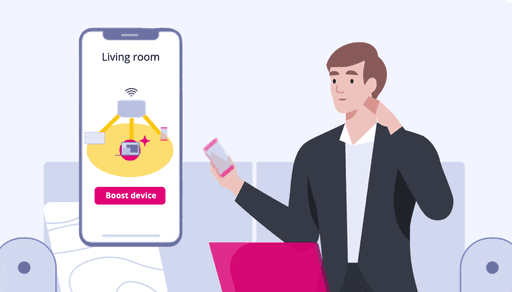
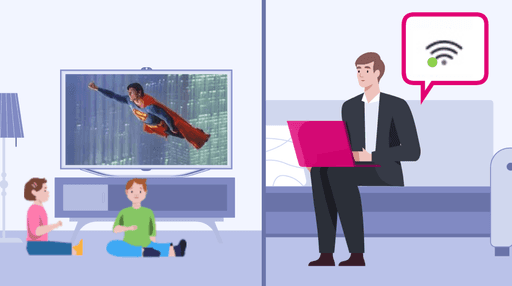
Create a wifi
Current solution allows user to set up the guest wifi, which just provides internet and limits the access to personal devices or files. Now we allow users to create extra wifi based on scenarios. For example, kids' wifi, work mode wifi, entertainment wifi or smart home wifi. And each scenario has unique wifi settings.
First ideas:
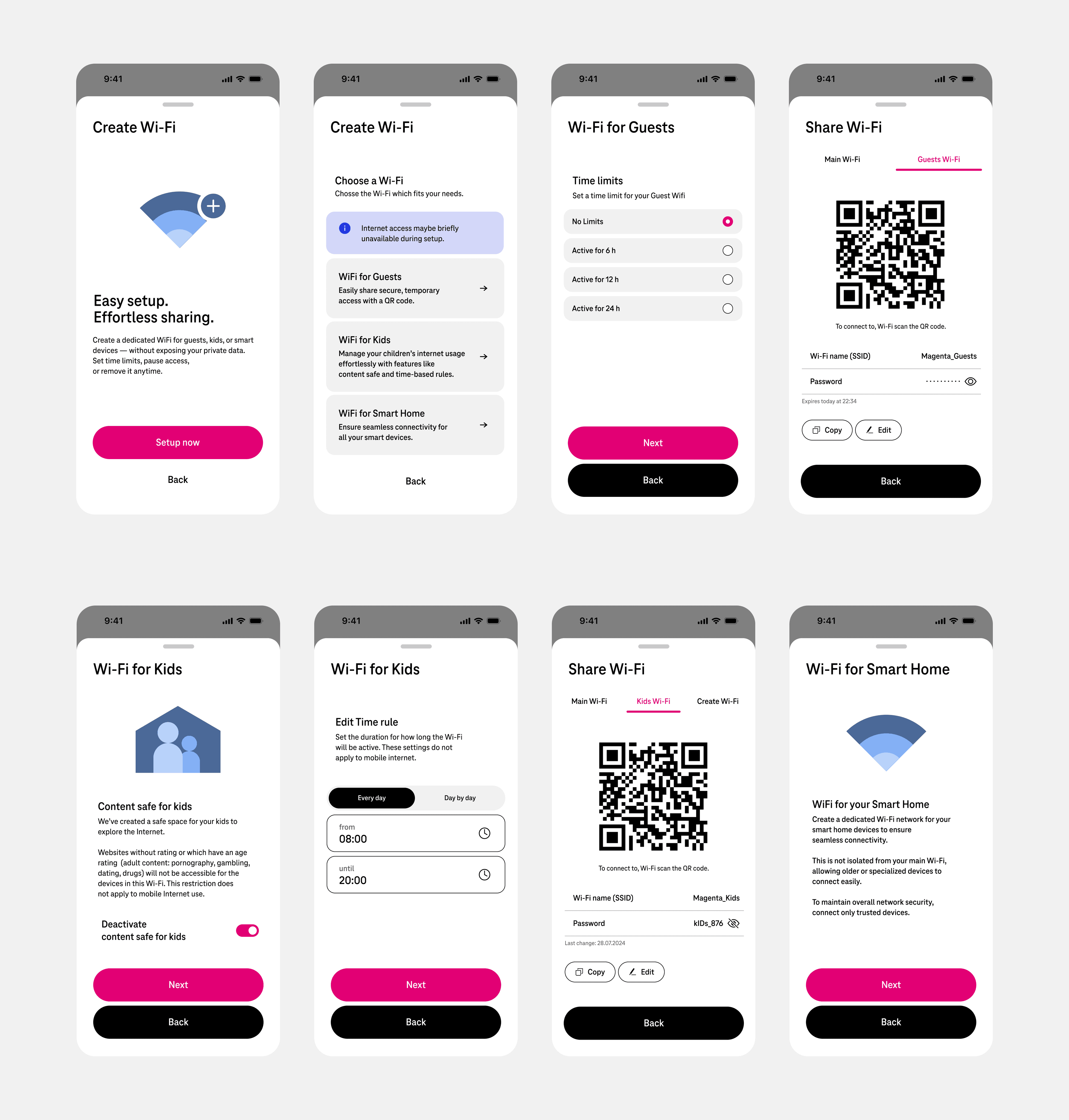
User testing
The first user testing was made to understand how users perceive during the journey, and to optimize the usability pain points in the flow of Connected Device, Wifi-Sharing and Internet Settings based on insights. After the two weeks, we conducted the second round testing.
Methodology

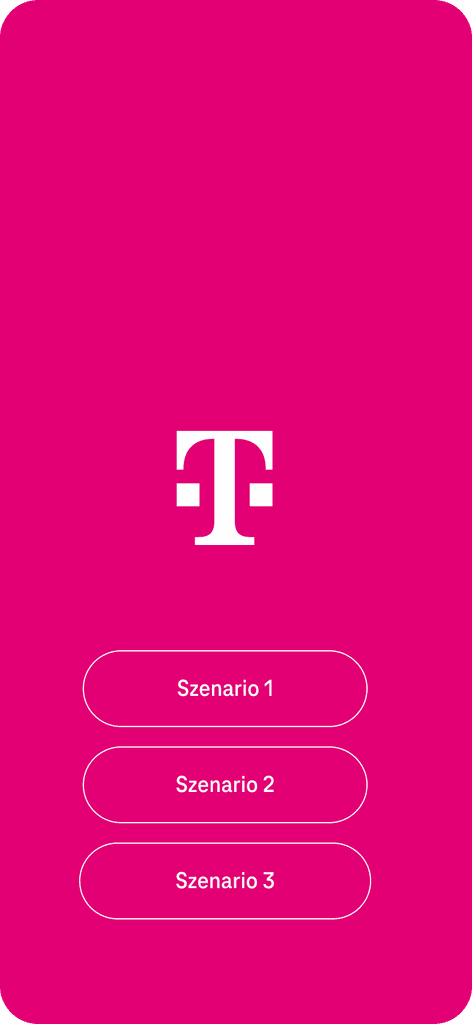
The three flows were designed into prototype with three scenarios.
In the first 20 minutes of the interview, the facilitator asked general questions to understand how are participants' relationships with Telekom broadband and the app.
In the next 30 minutes, the participants were given instructions to go through three scenarios while speaking aloud about their feelings.
In the last 20 minutes, participants were asked about the feedback of the flows and the advice for improvement by the facilitator and observers.
Overall results
The features were well structured, easy to navigate and find things.
Participants find a lot of new valuable functionalities with real value.
Ease of use of the three flows (out of 5) - Connected Device: 4.3 Wifi-Sharing: 4.6 Internet Settings: 4.4
Identified some frictions in the flow.
Some examples of the finding:
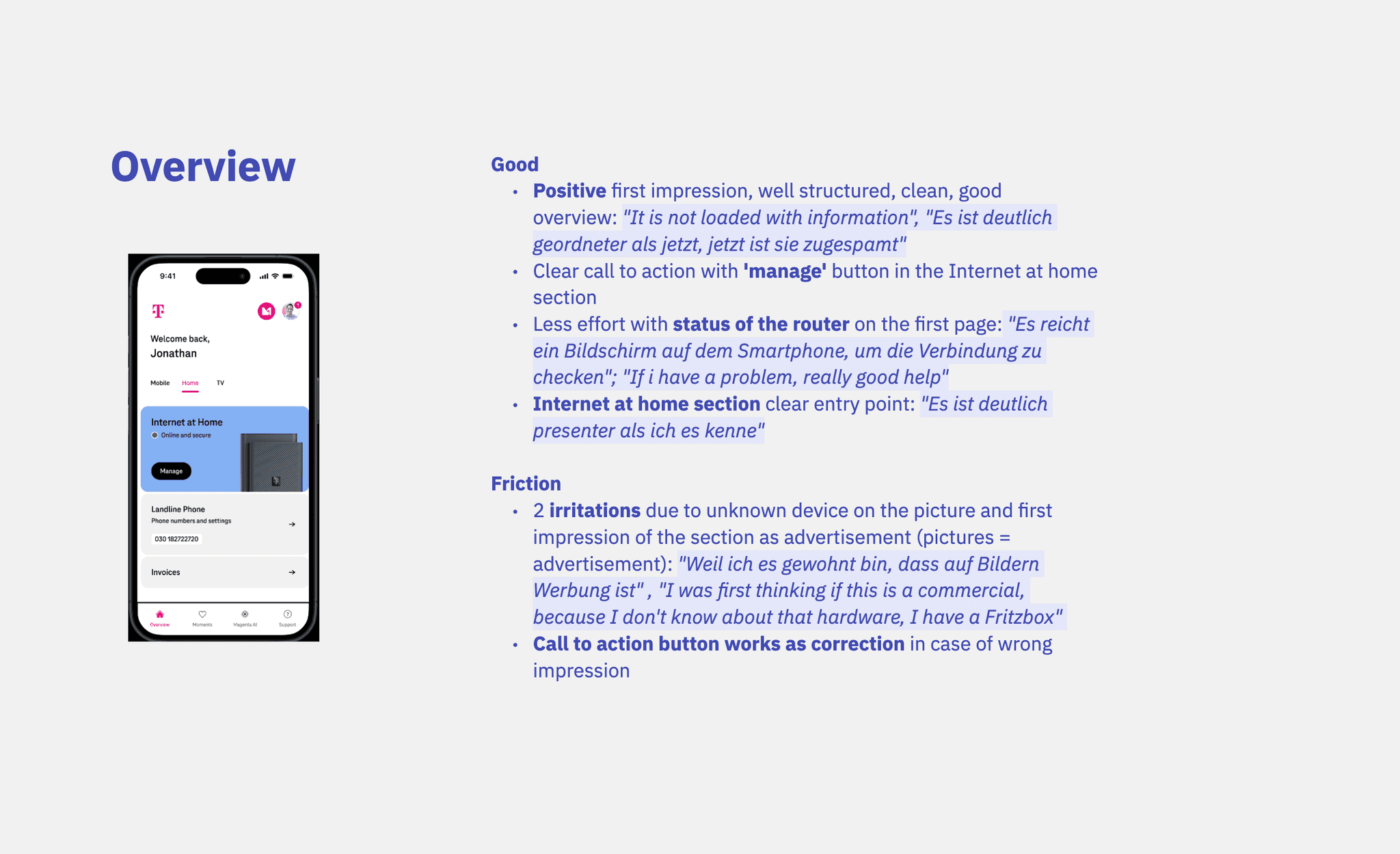
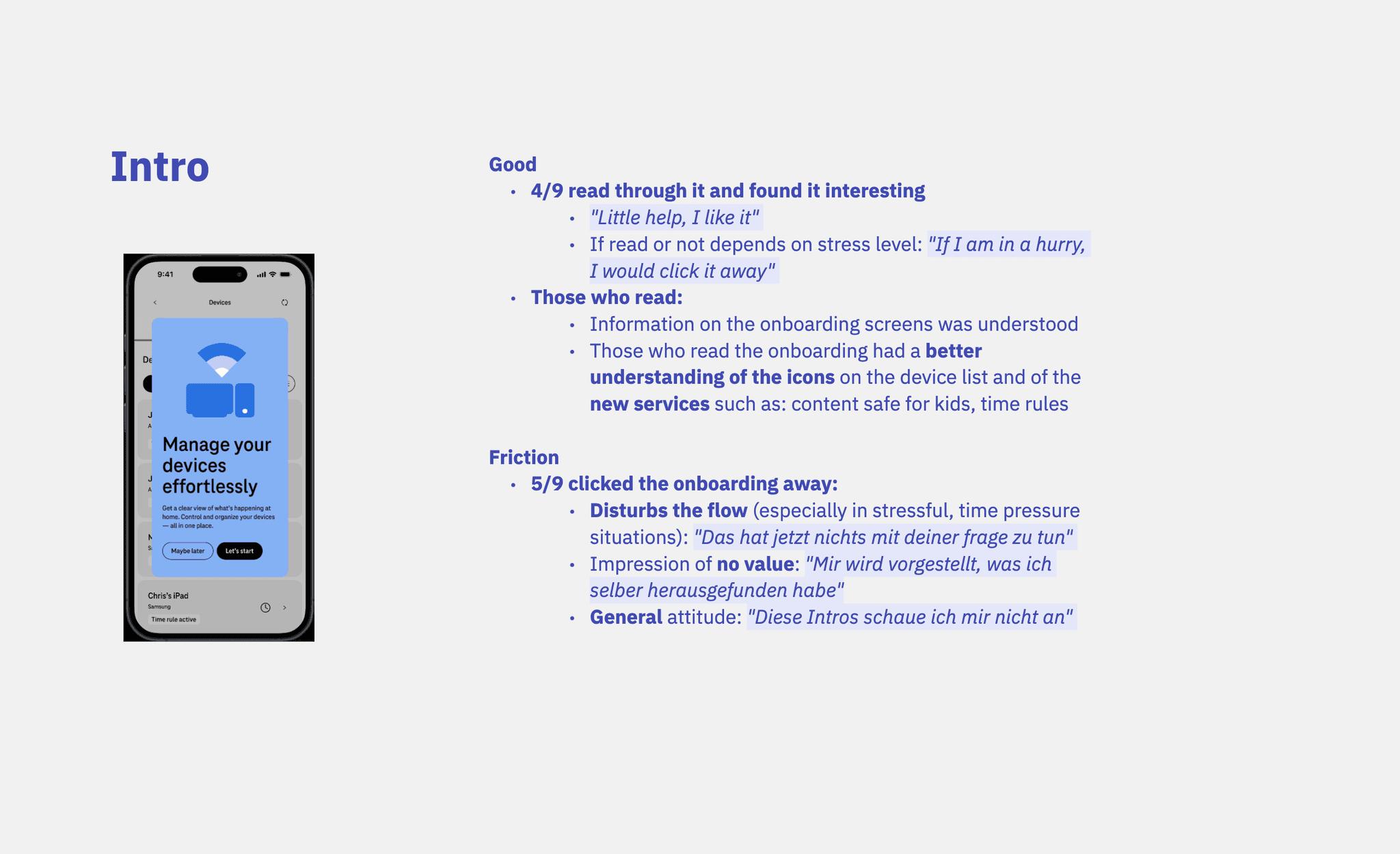
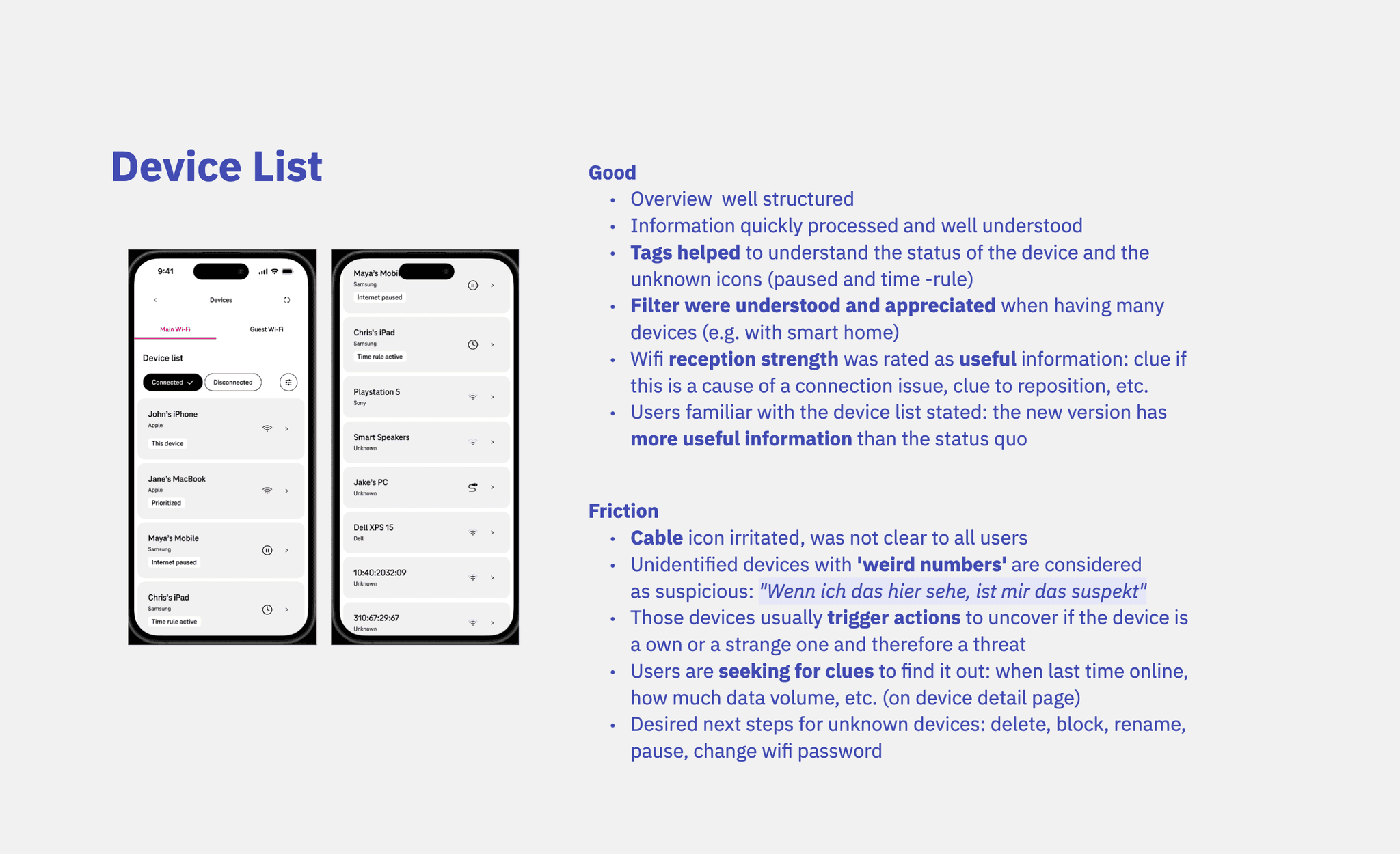
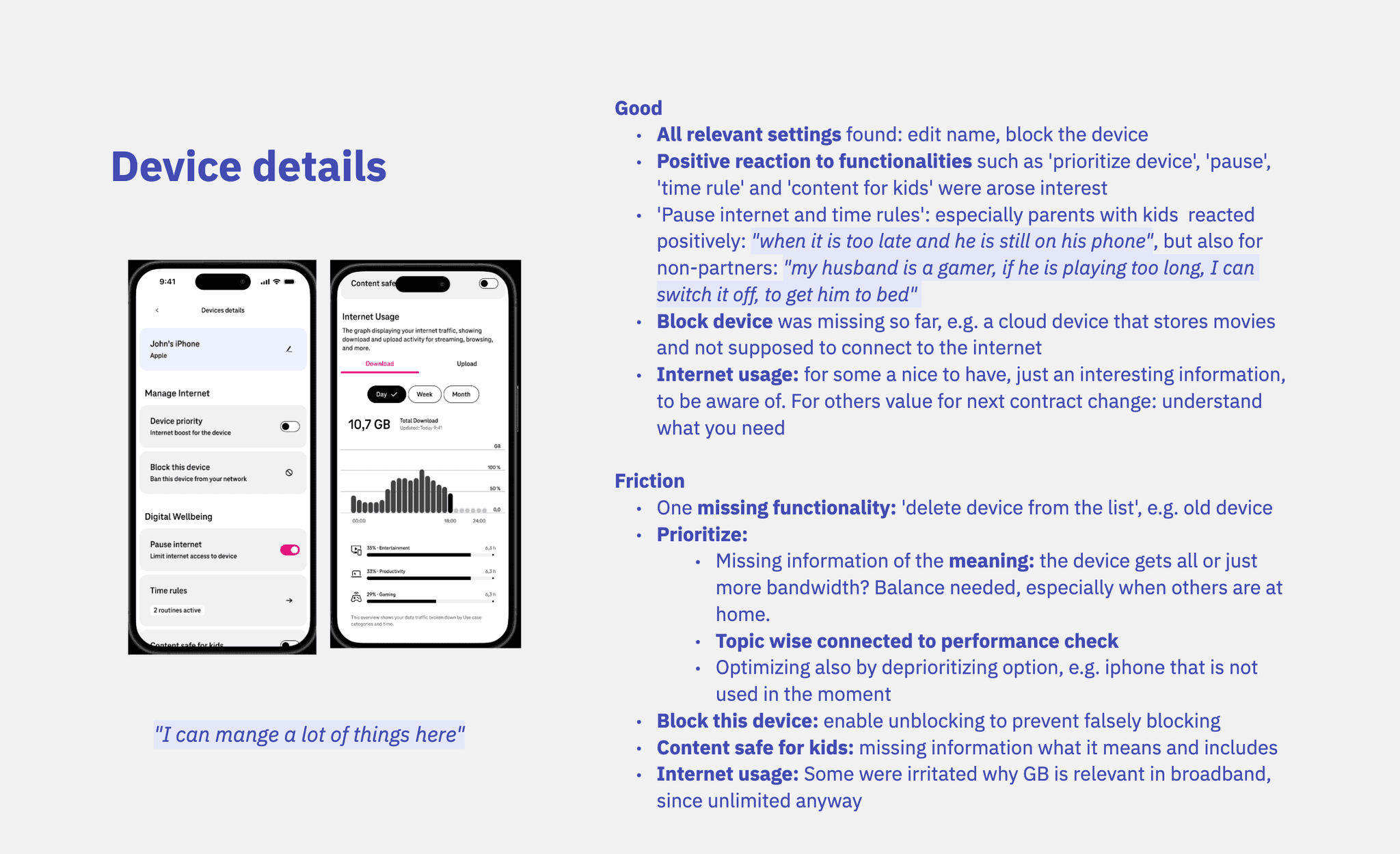
Conclusion
The redesign of the broadband service is still an ongoing project, and I’m happy to be engaged in such an innovative and inspiring initiative and to contribute my creativity.
It has been a fascinating experience to explore the home broadband journey through close collaboration with cross-functional teams and conversations with customers. Most of all, it’s where I learned how to leverage the power of design to drive change within the company and ultimately deliver an exceptional experience to our users.
©DESIGNED IN 2025
Check other projects
